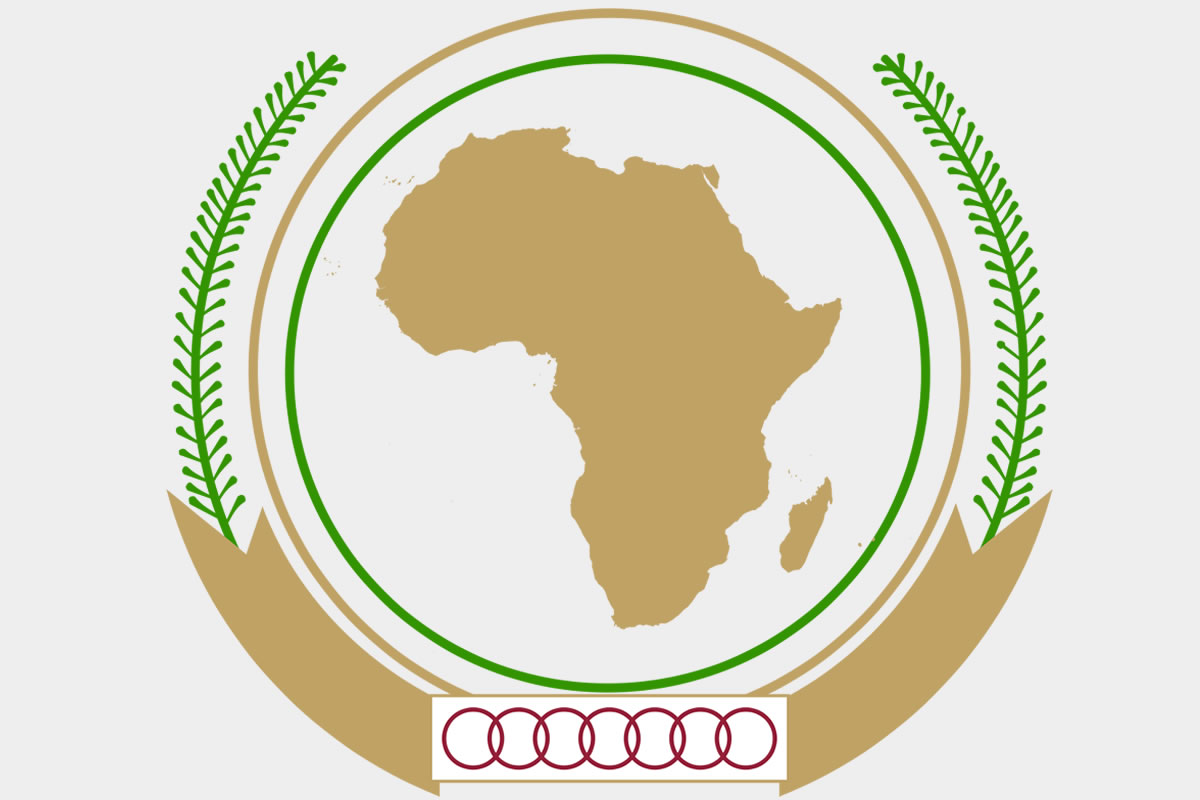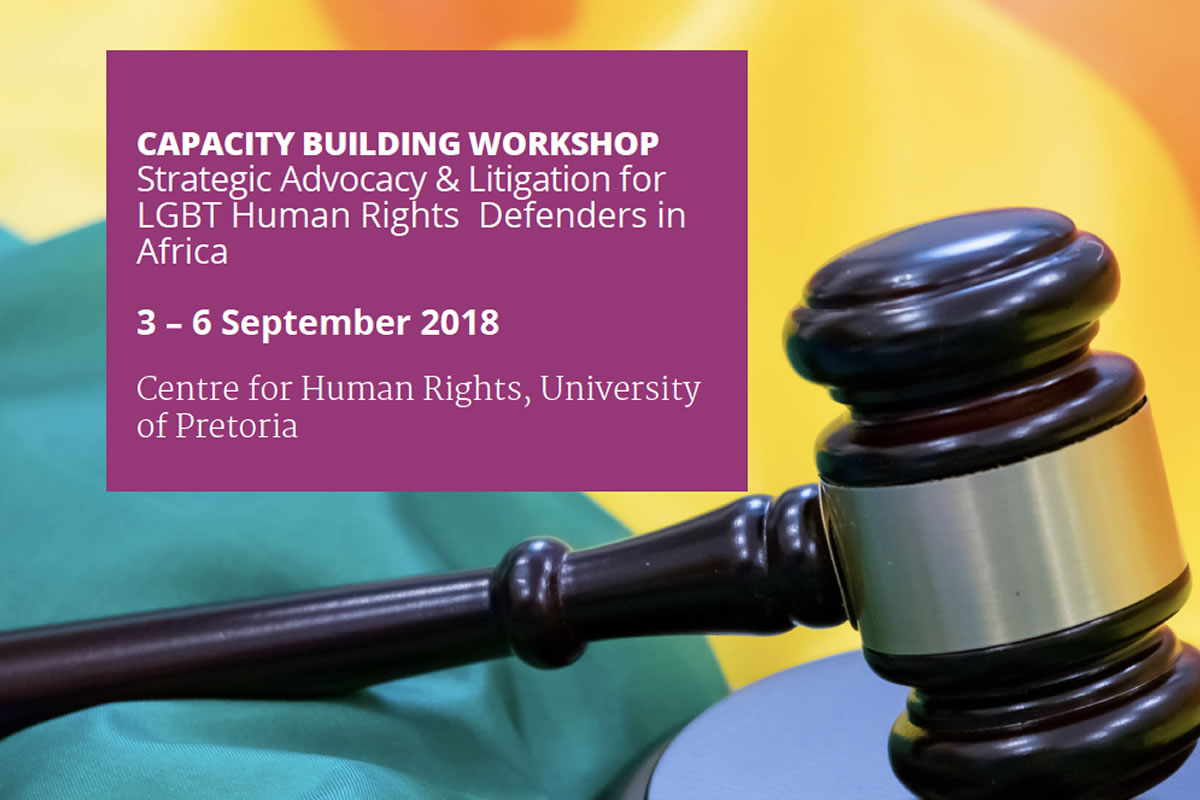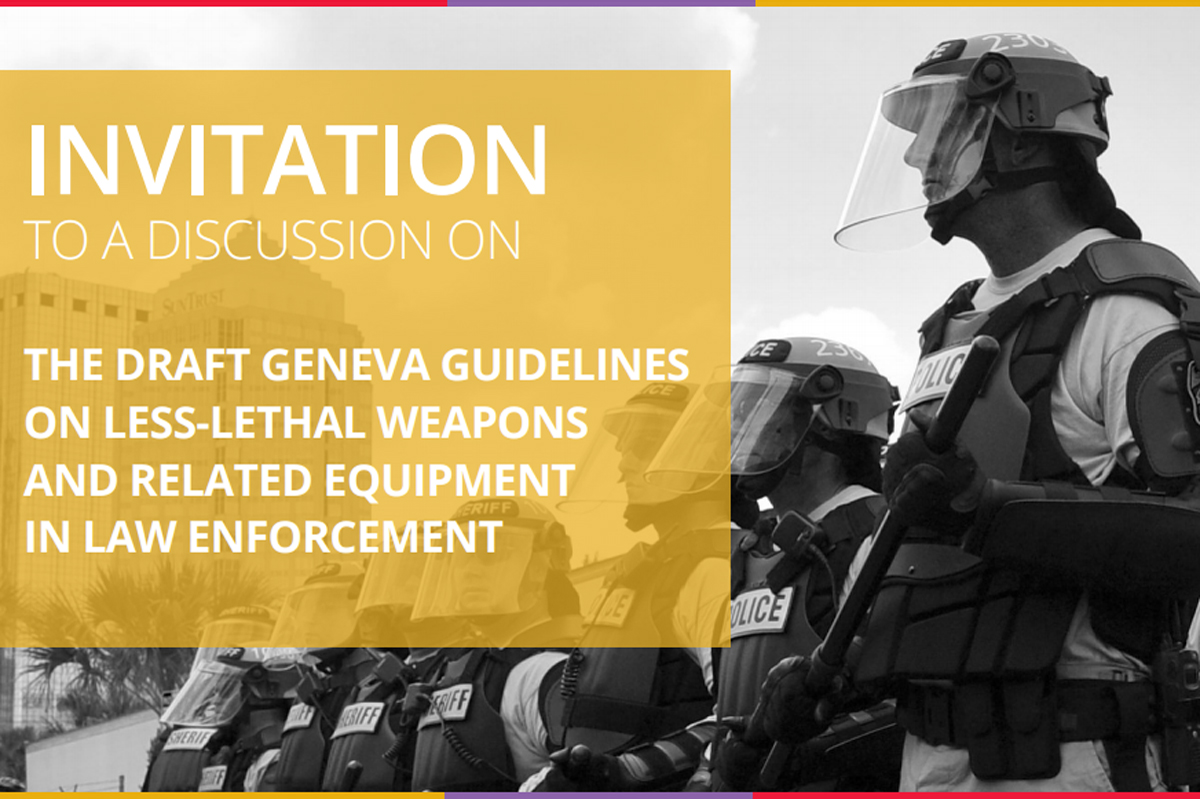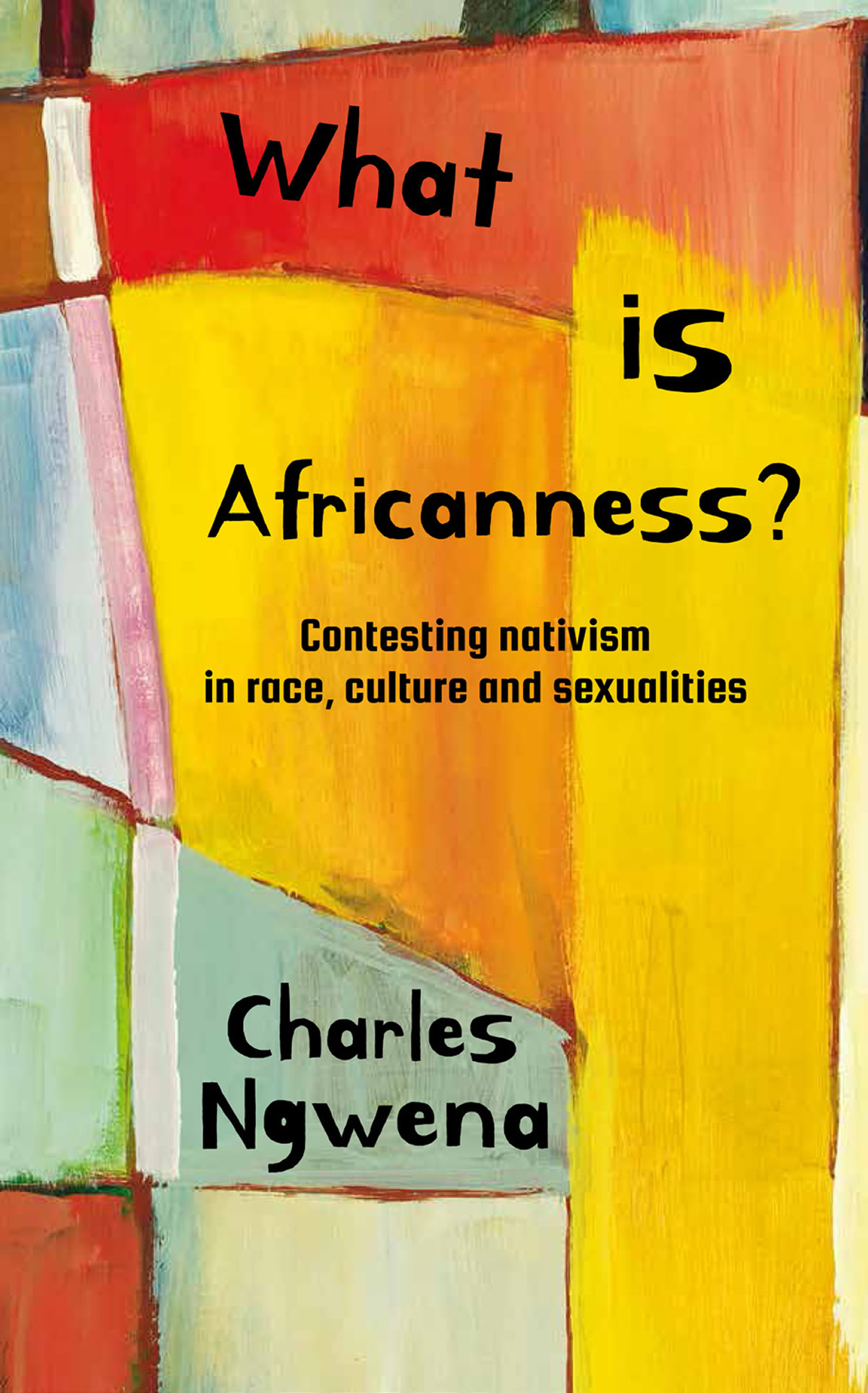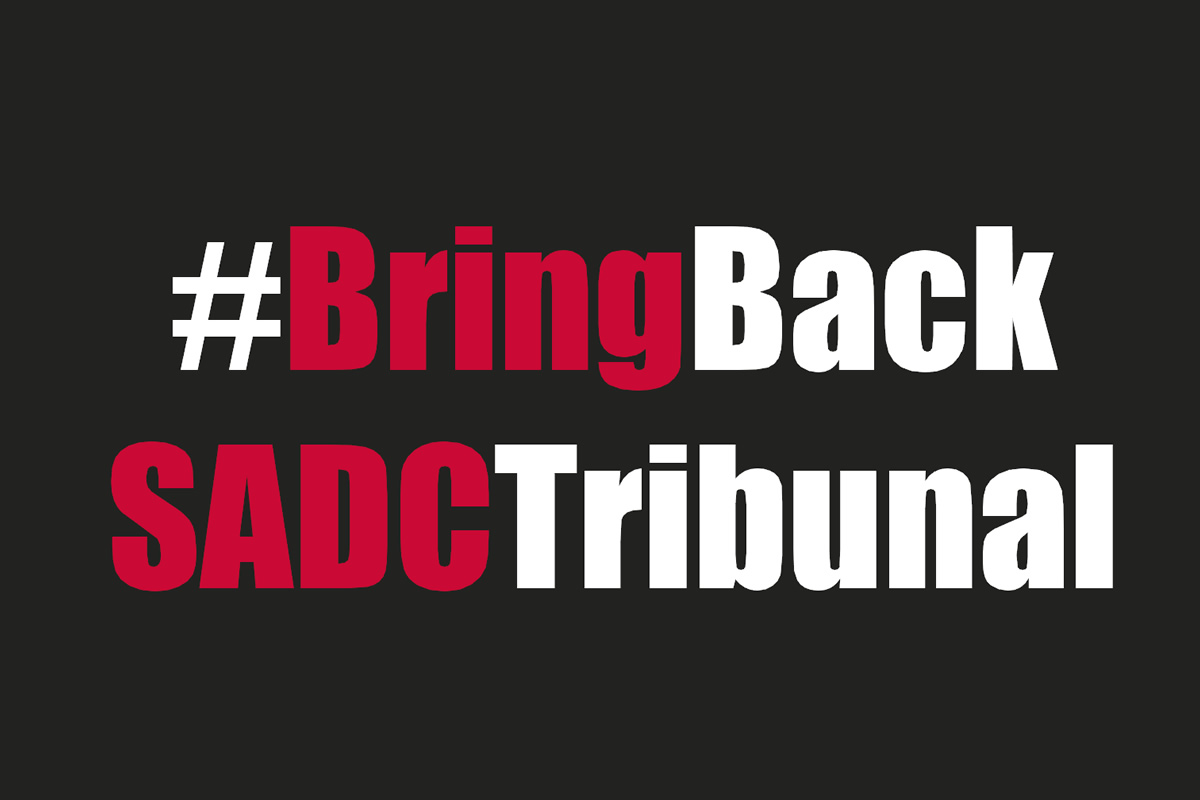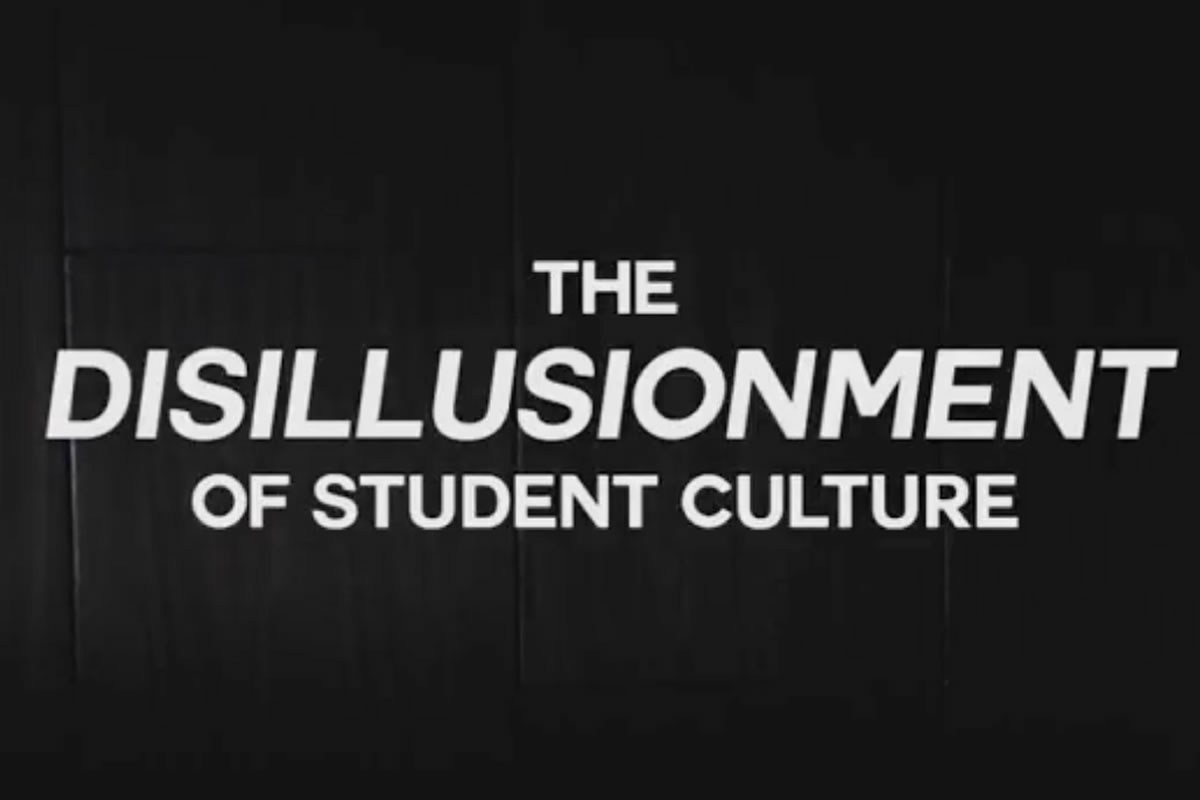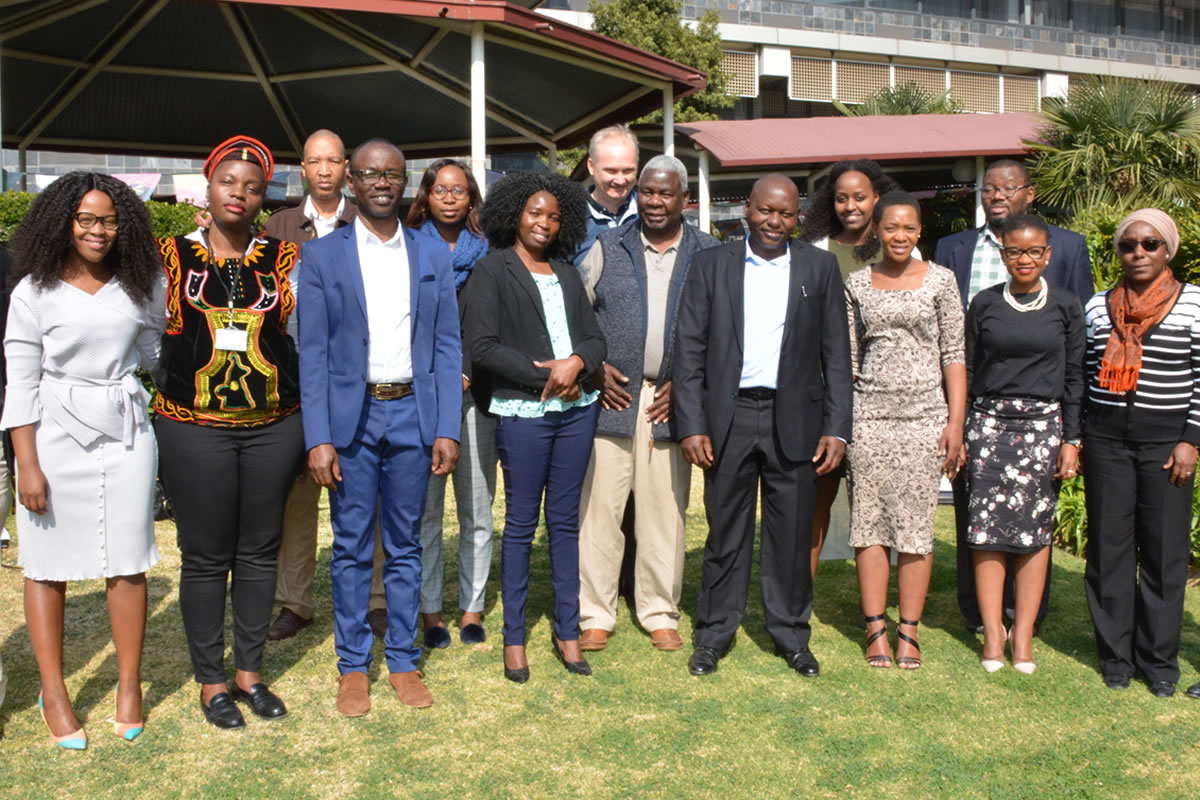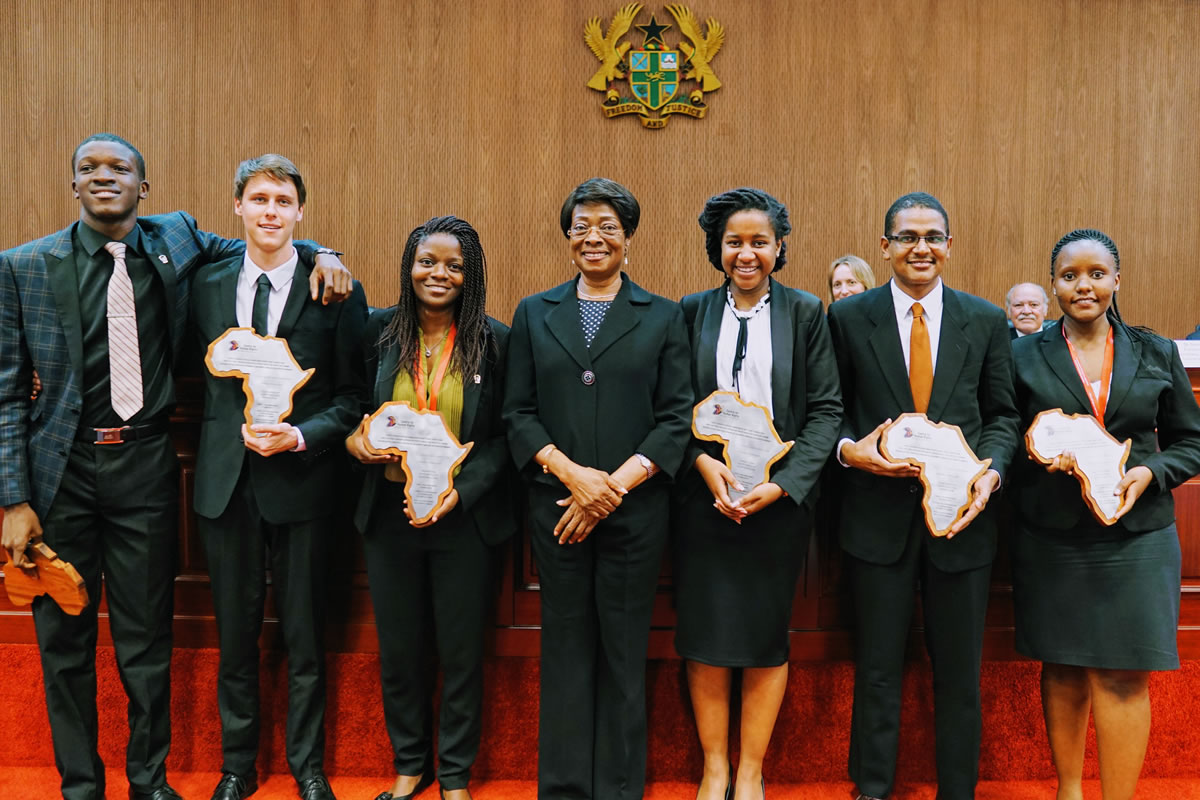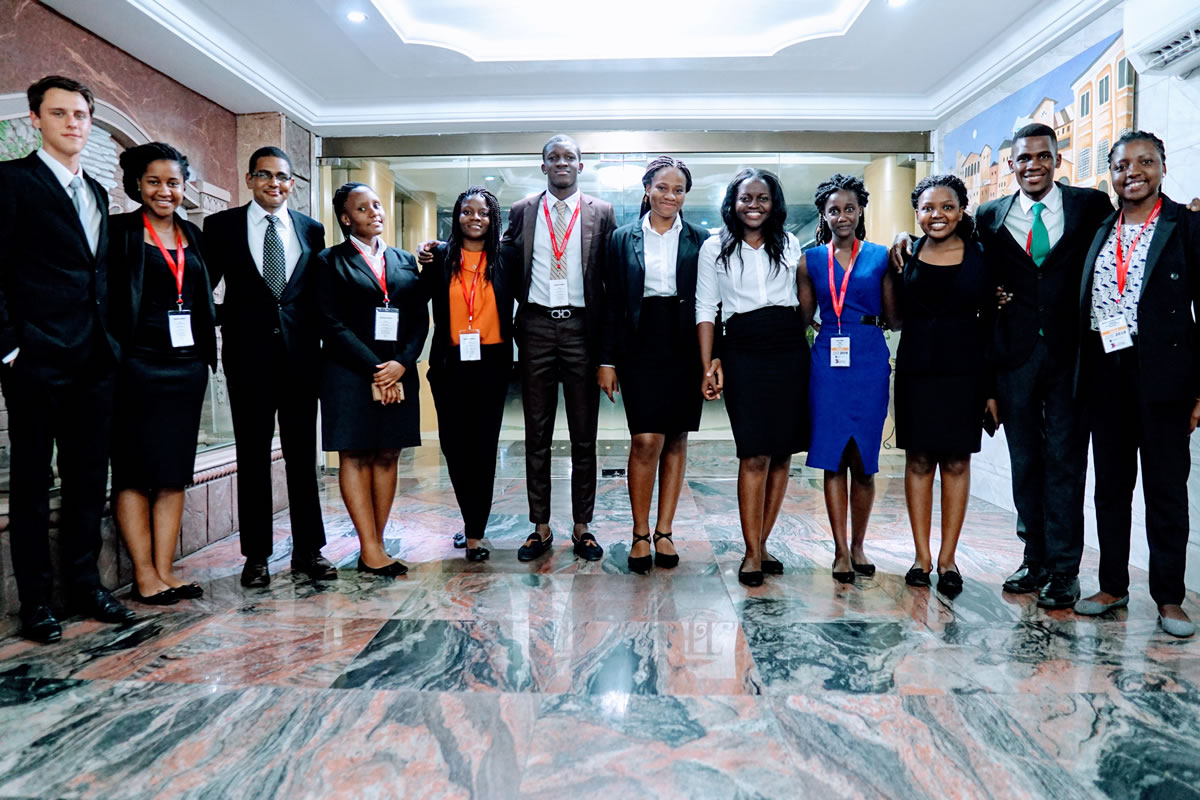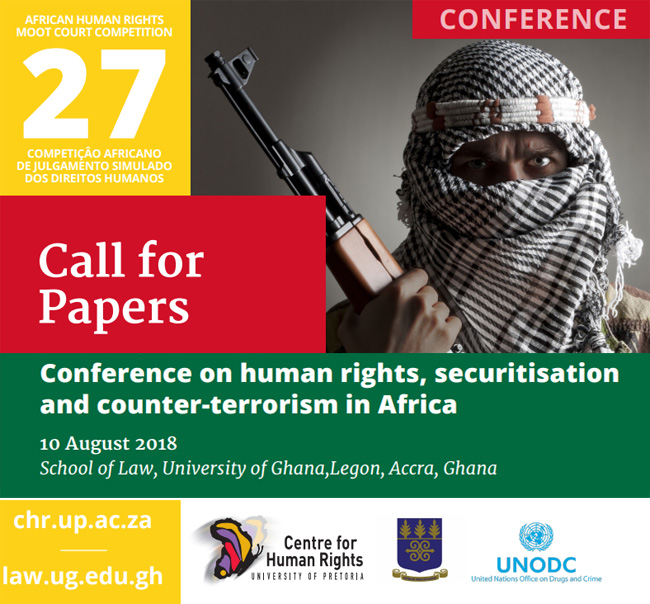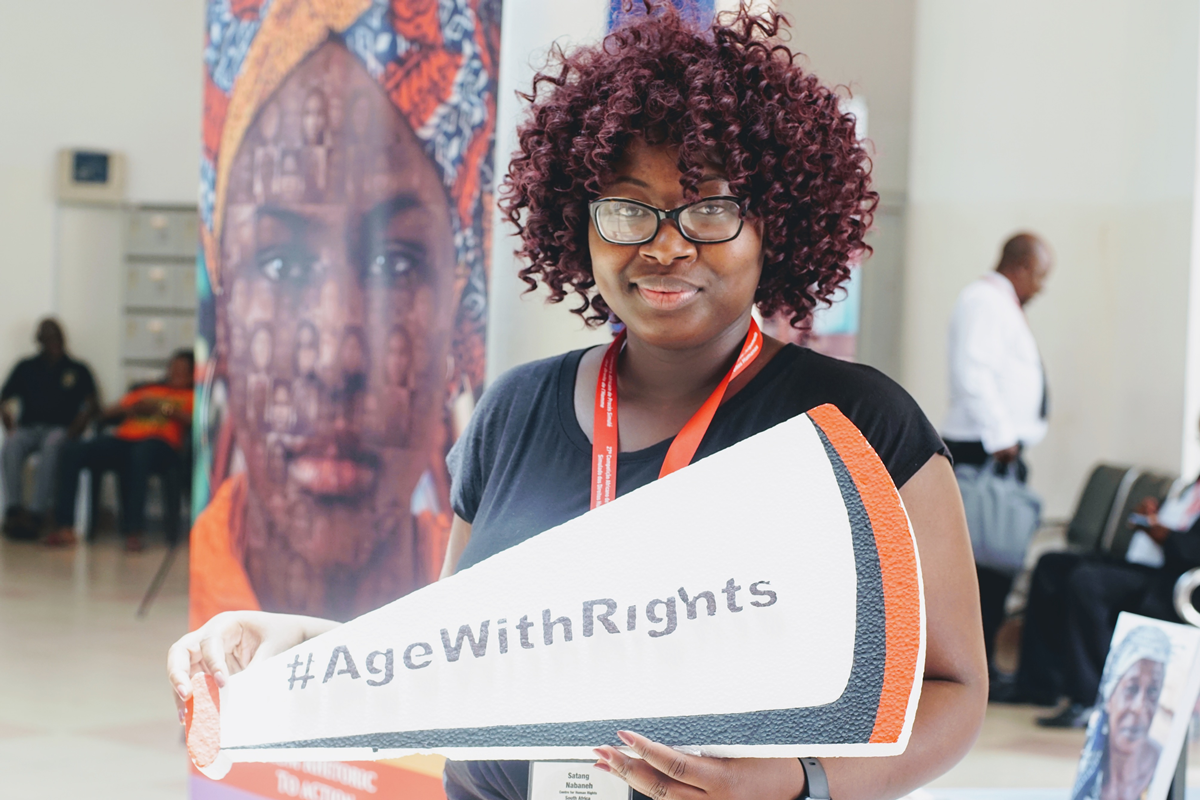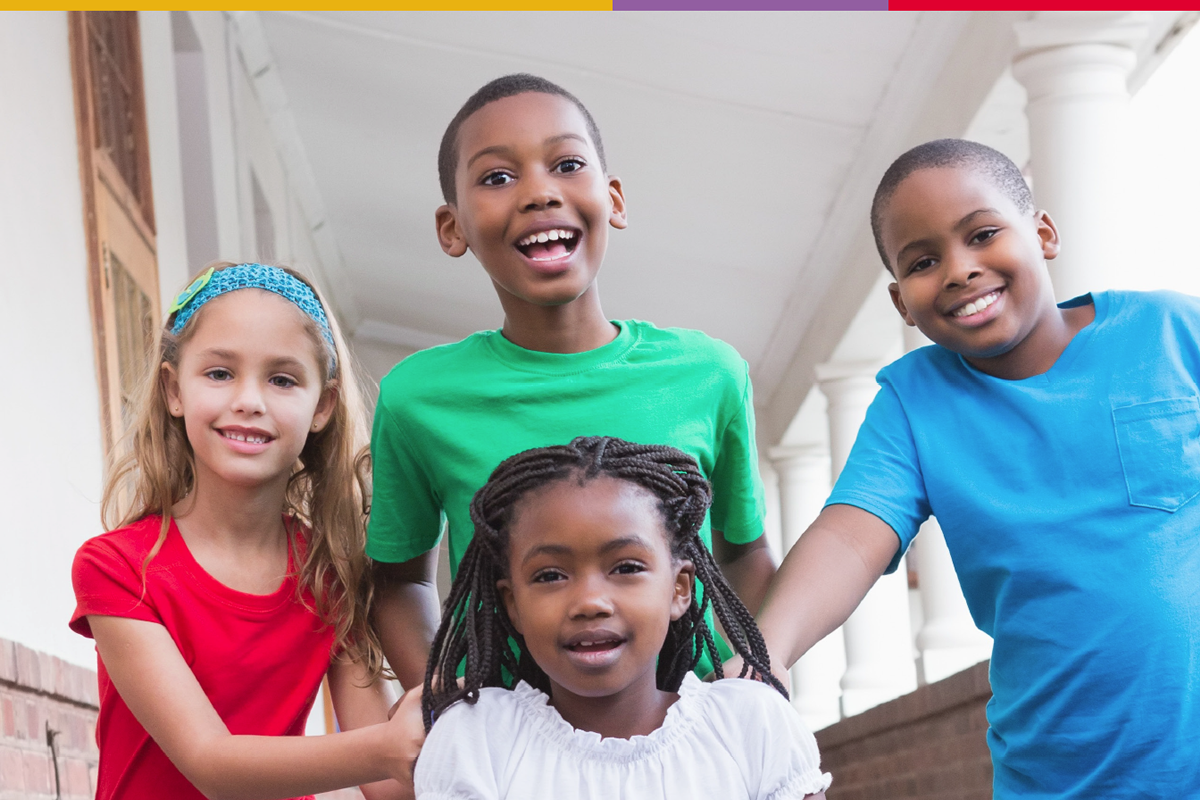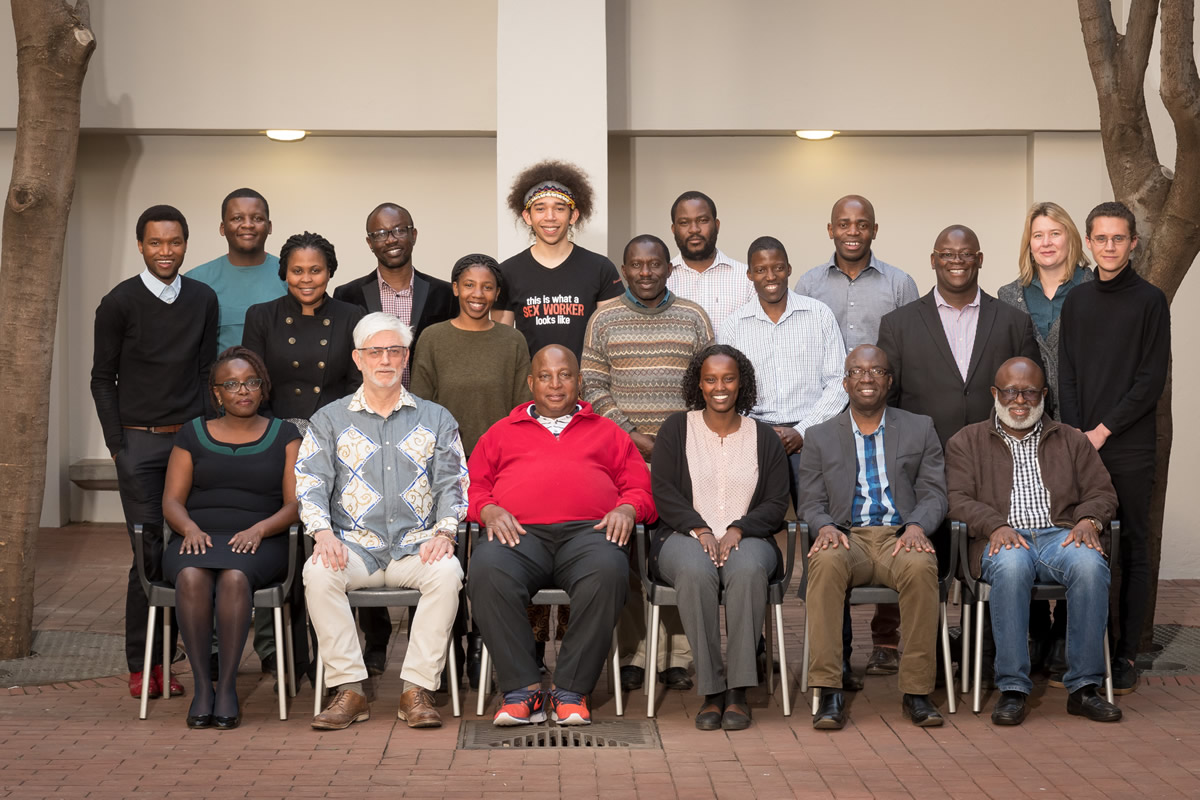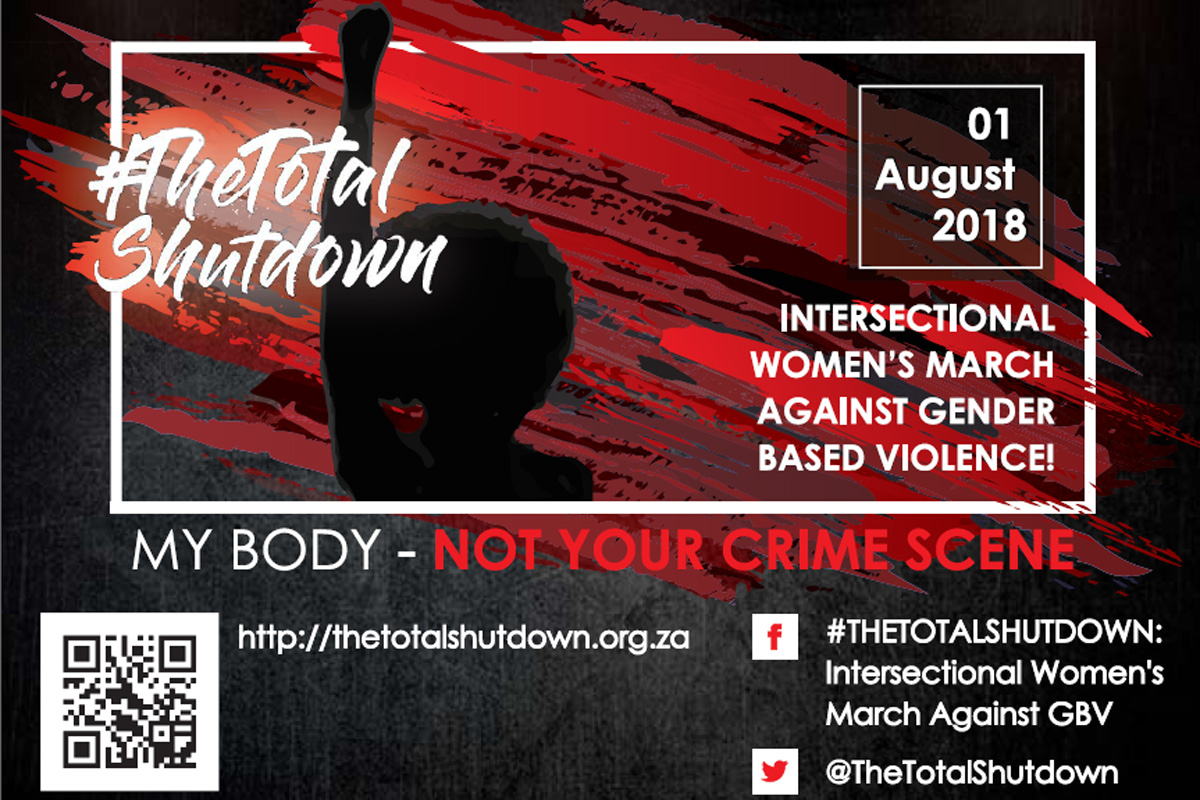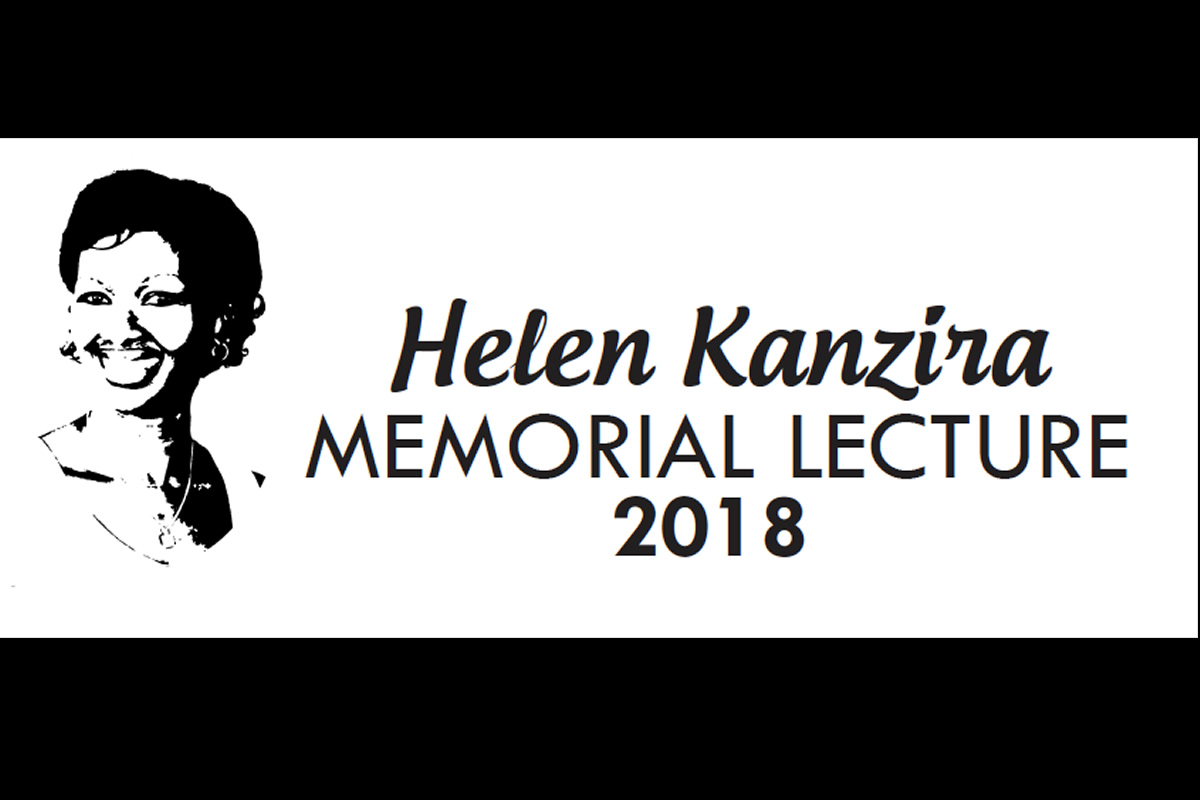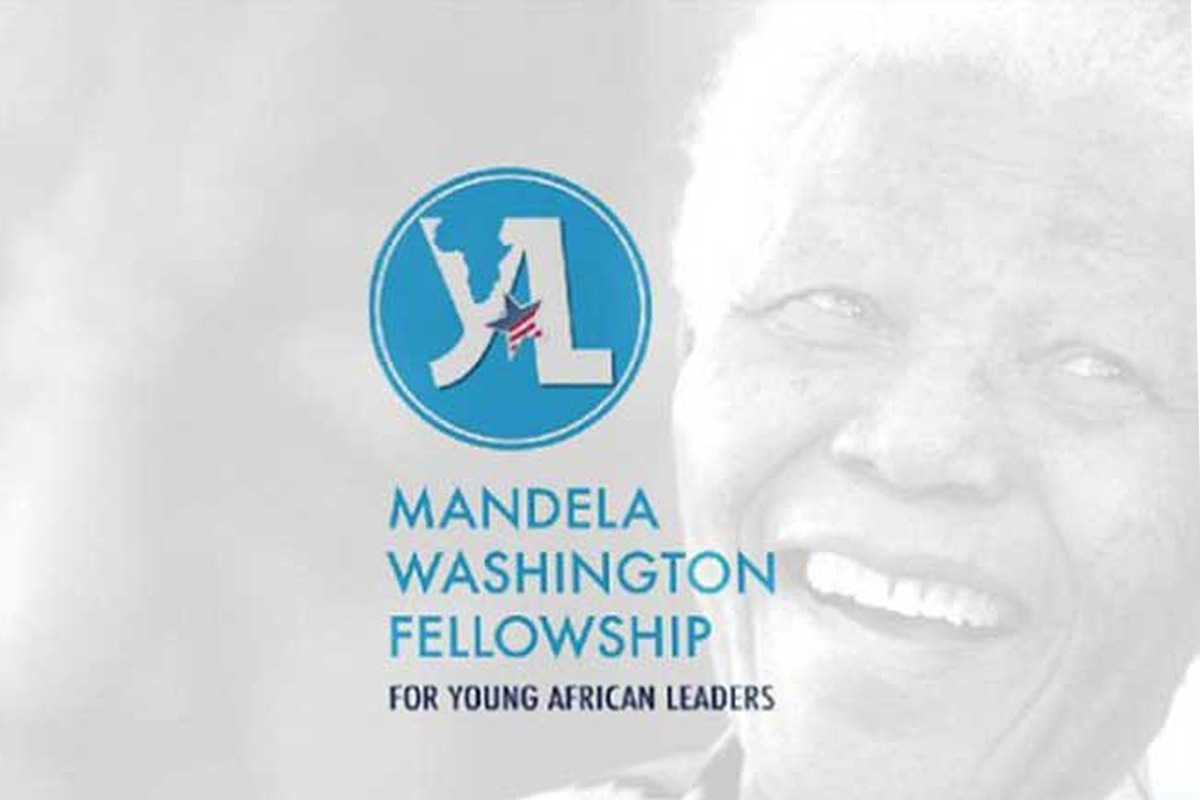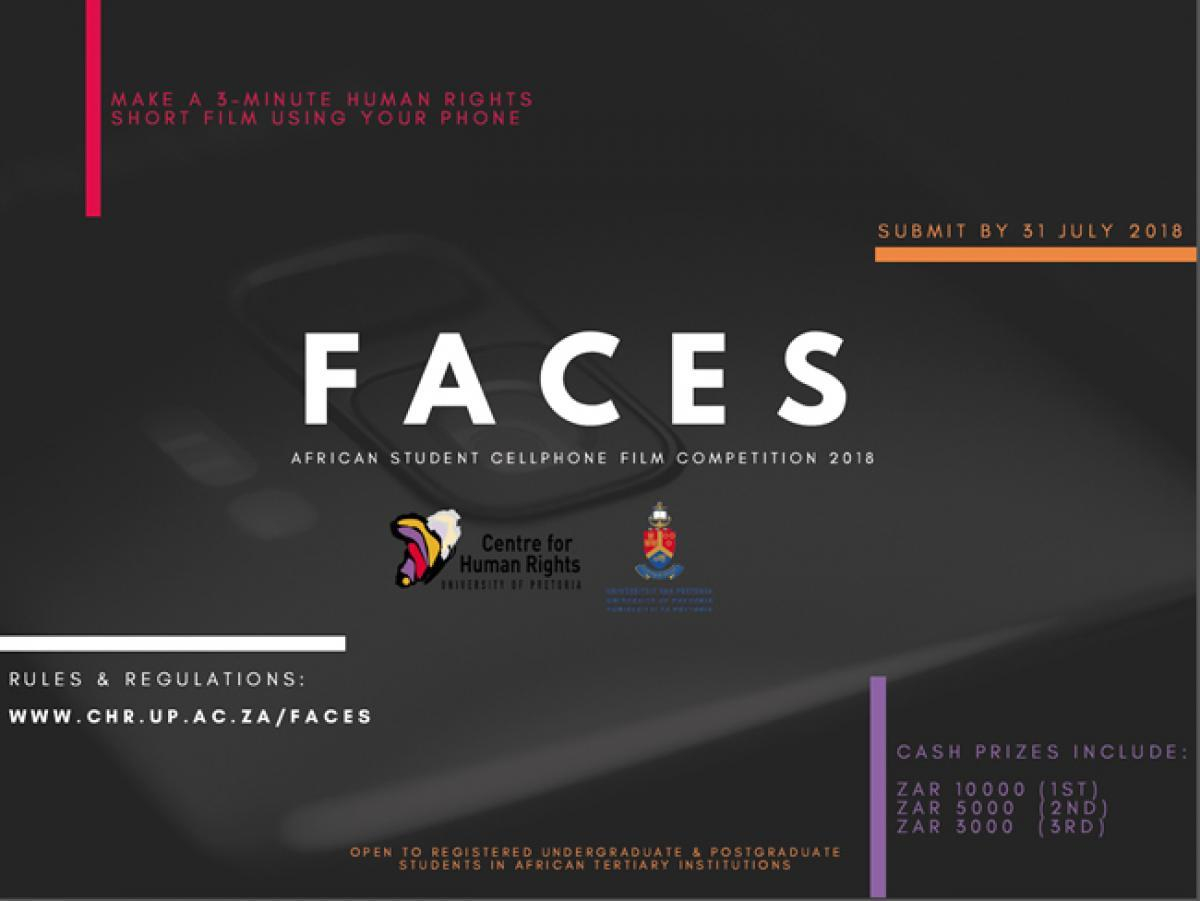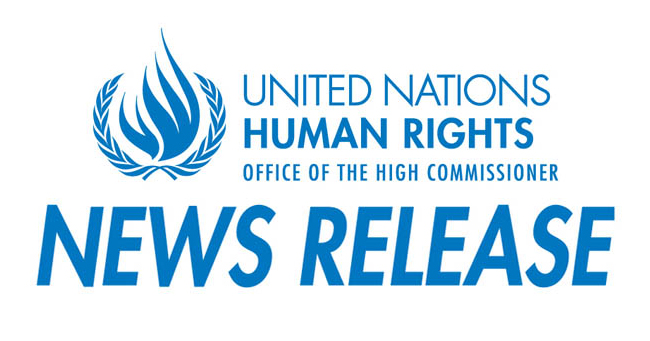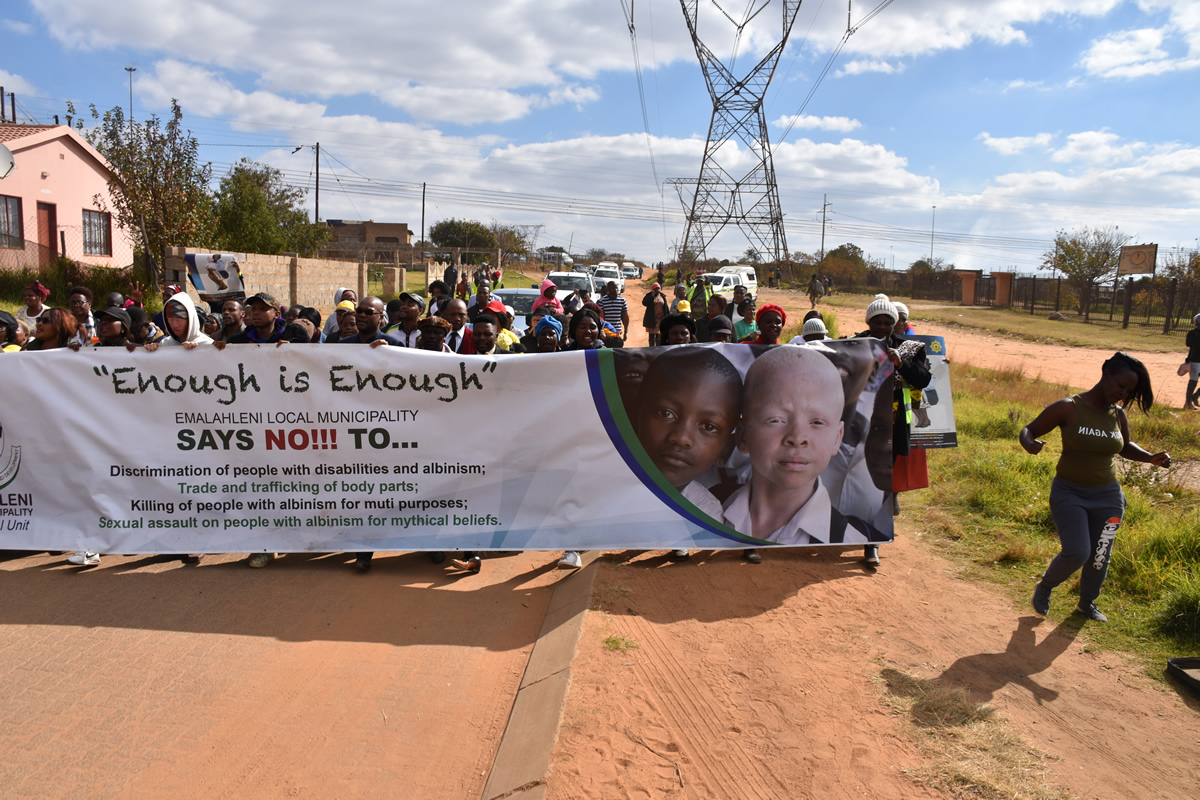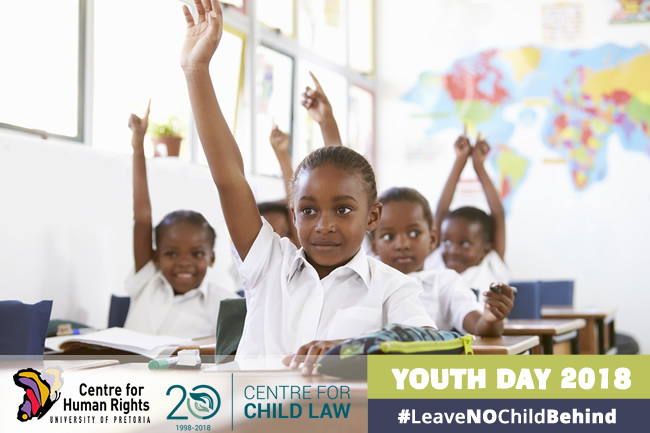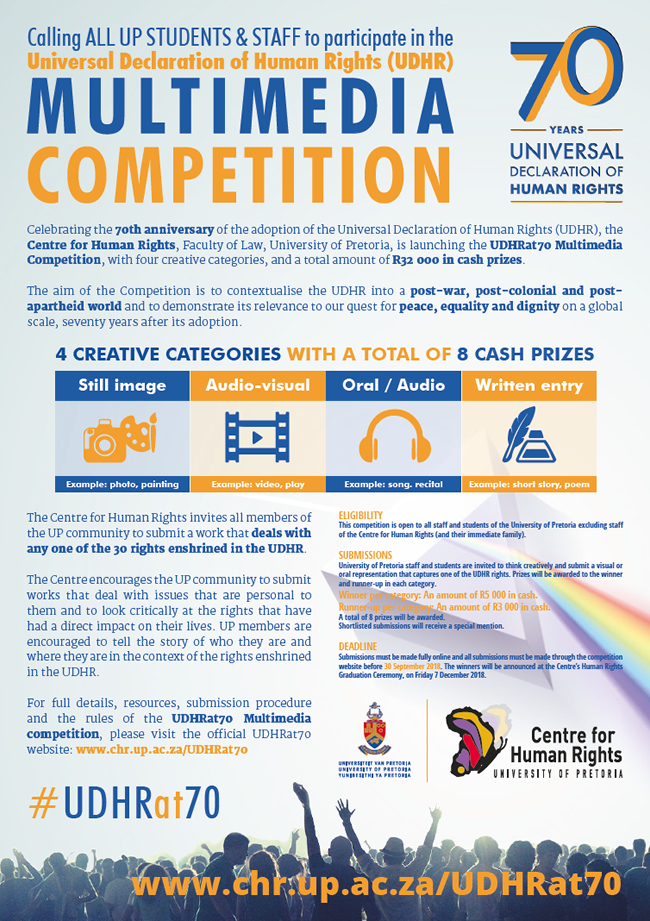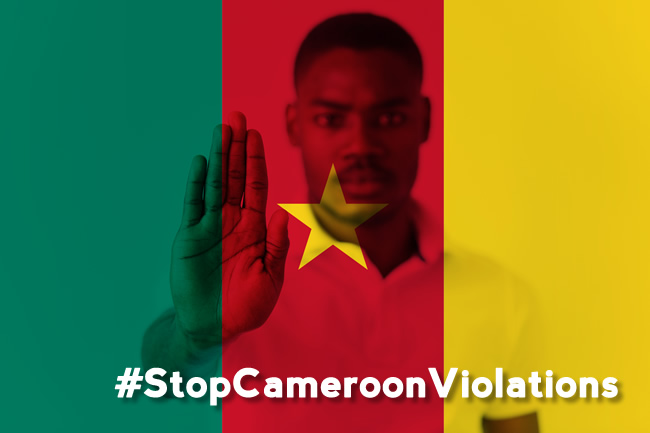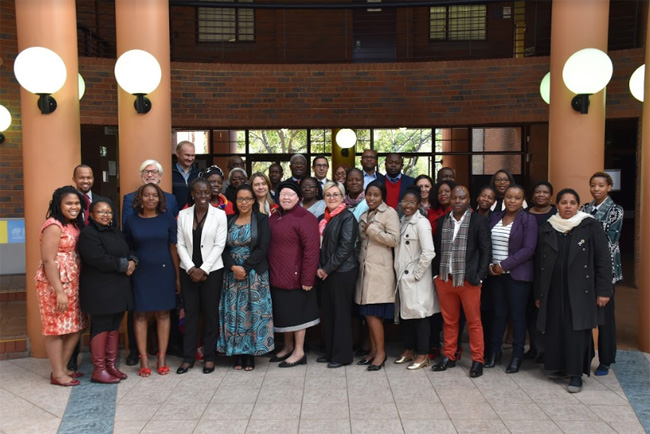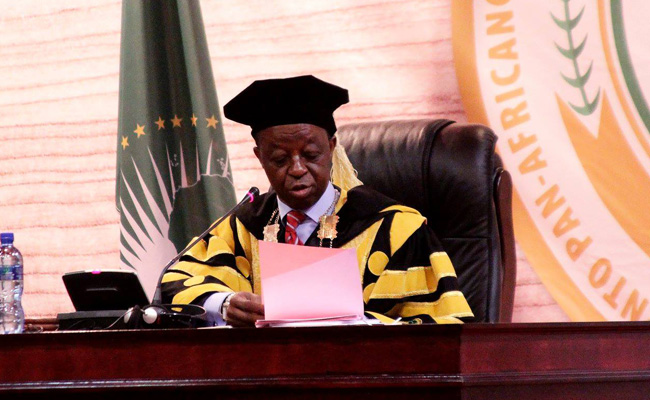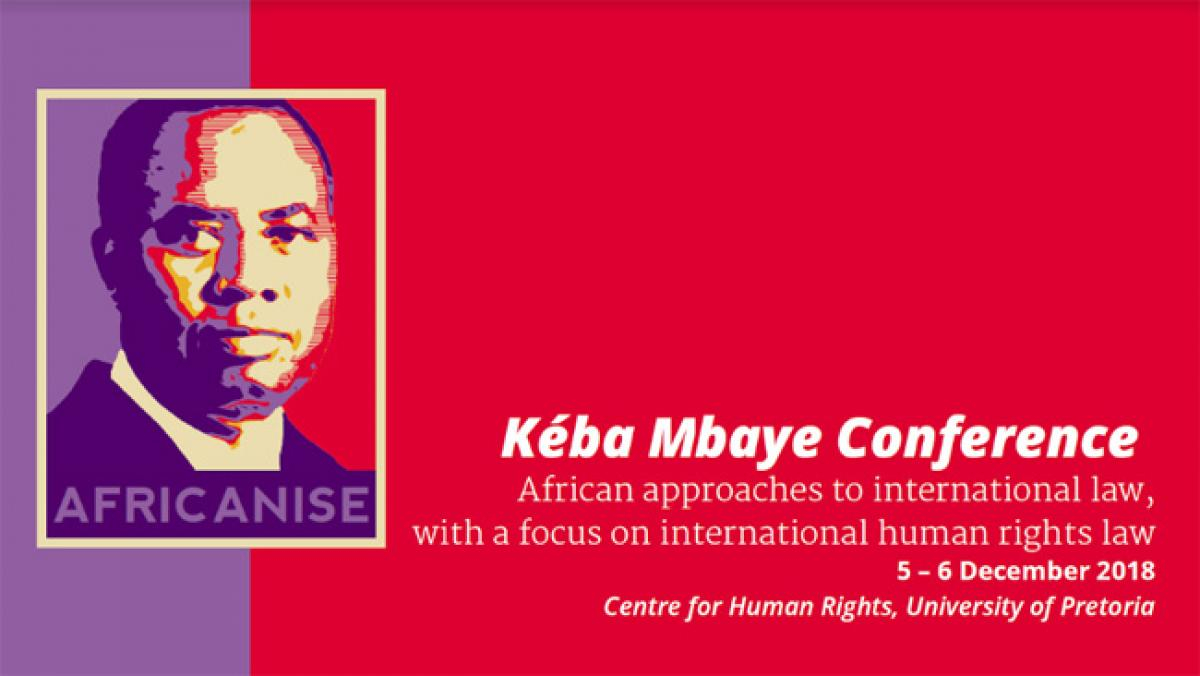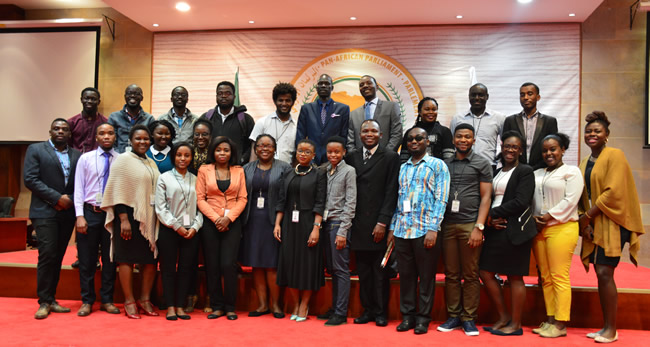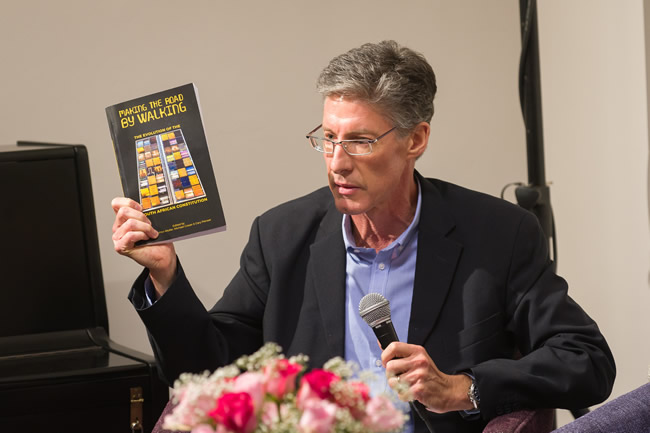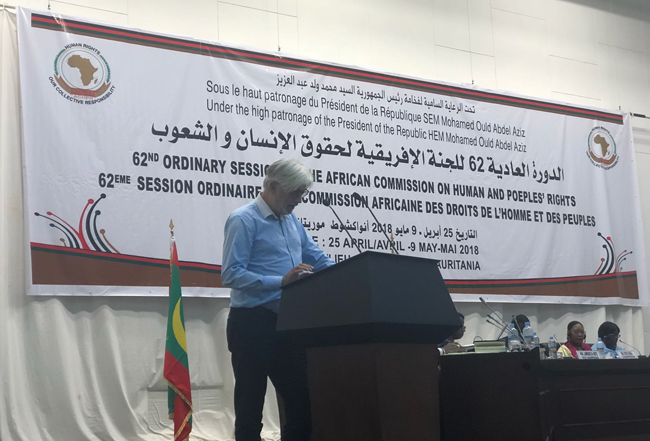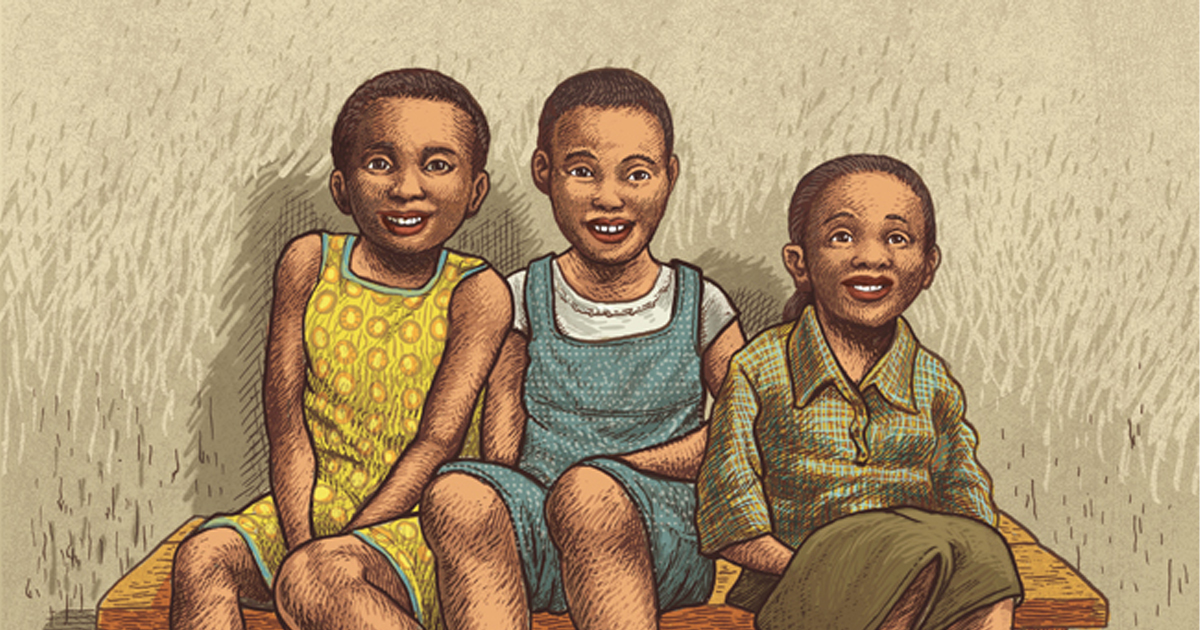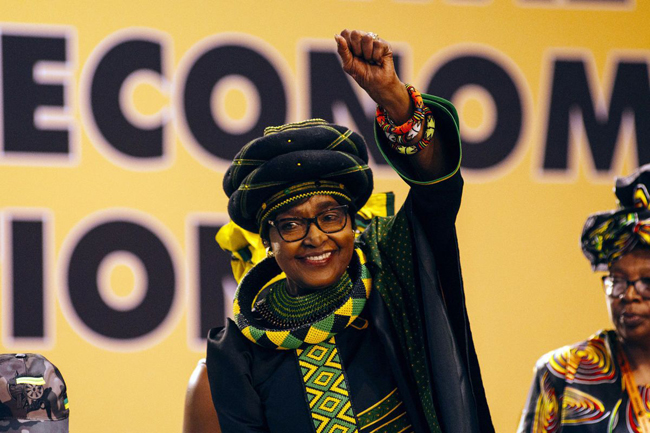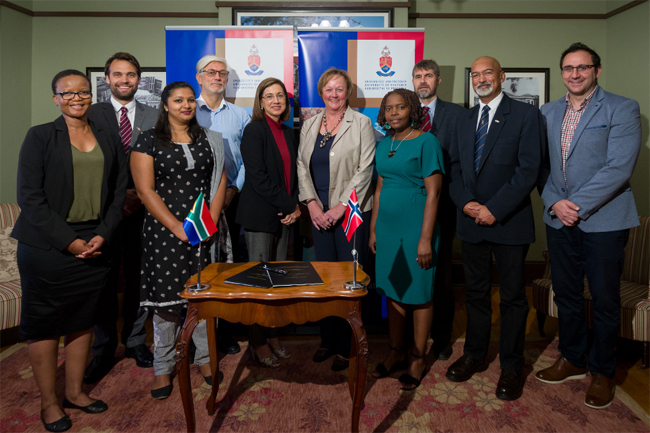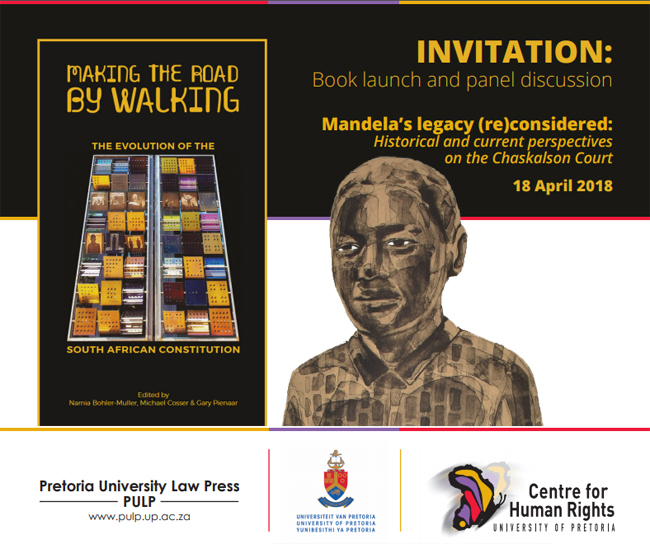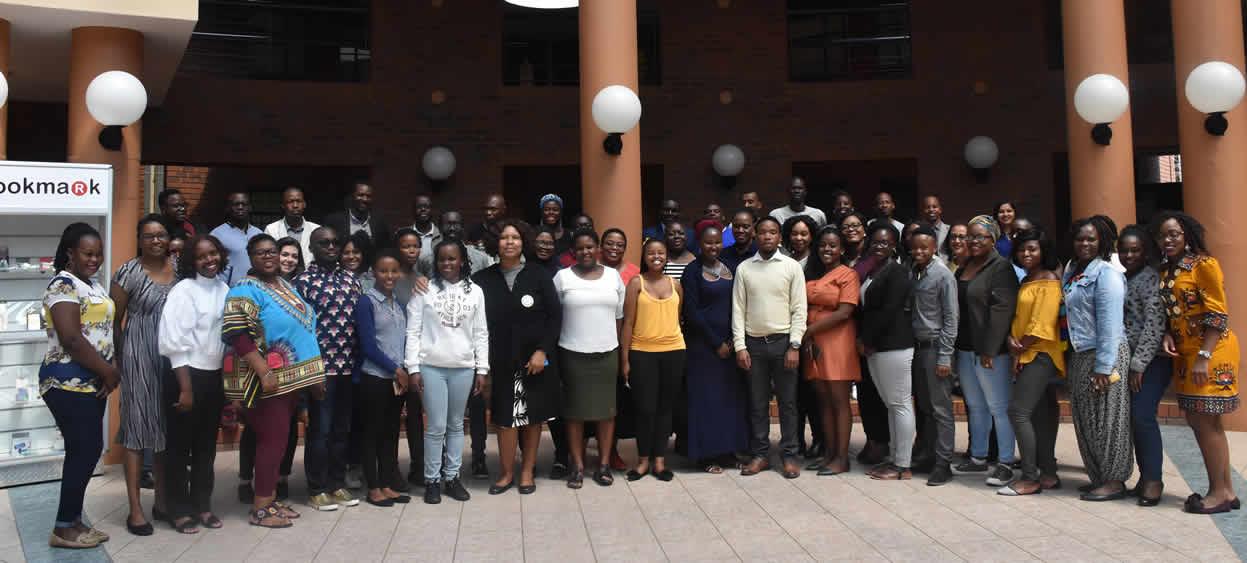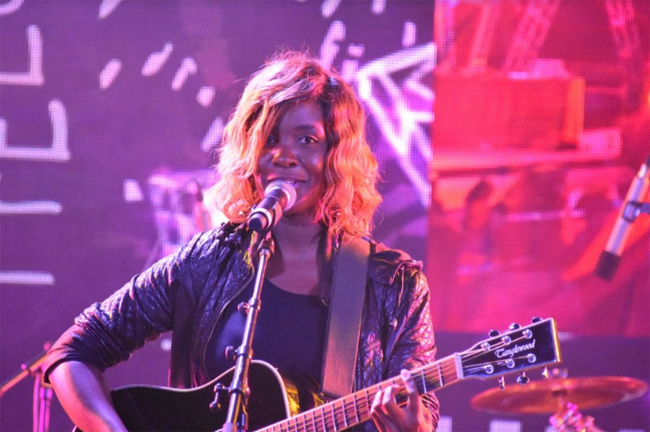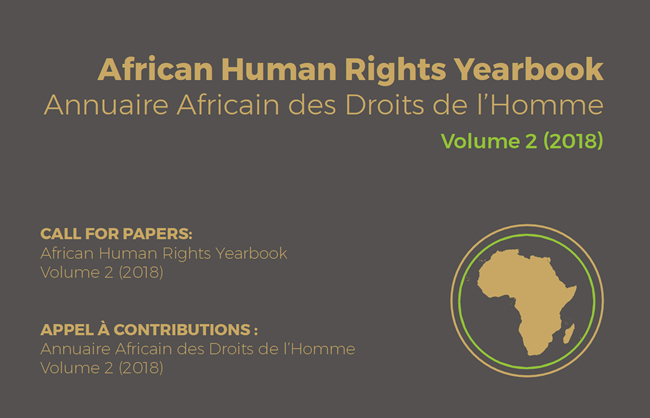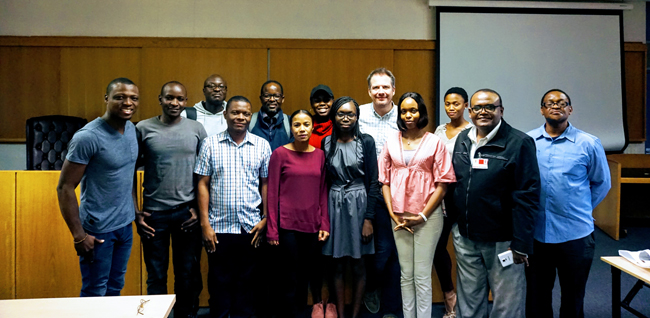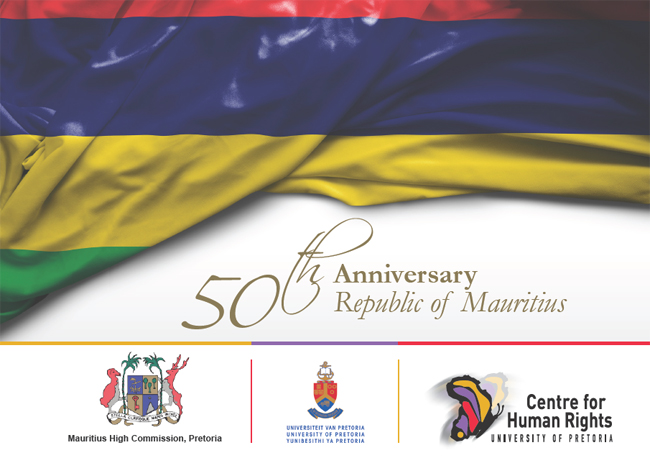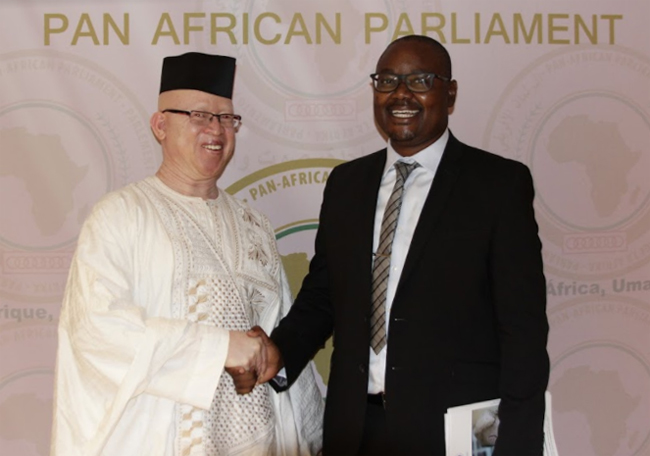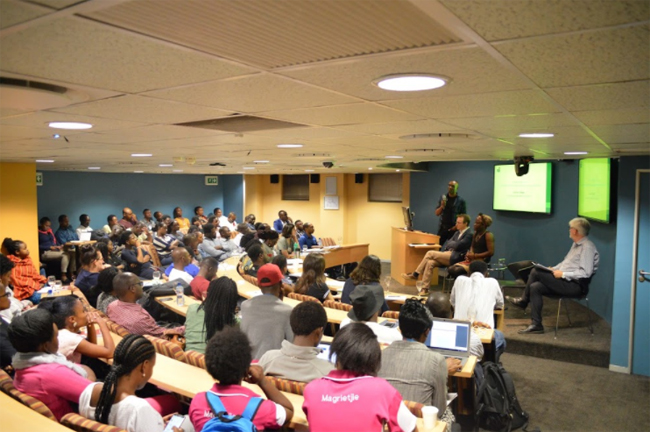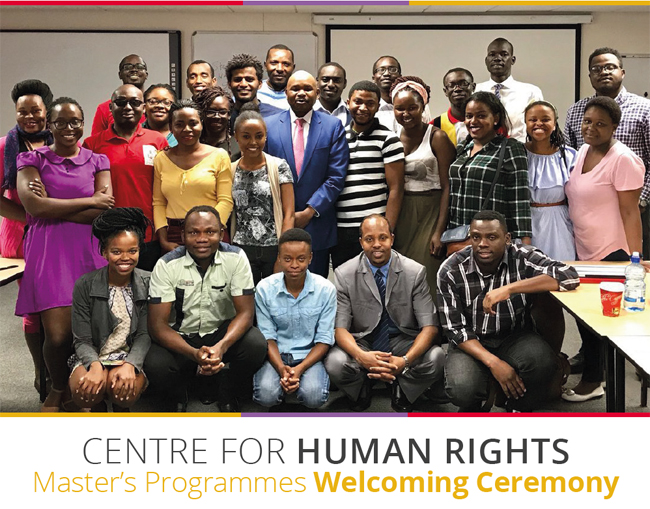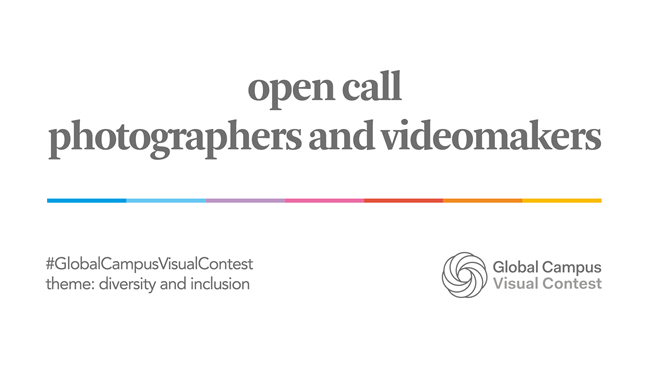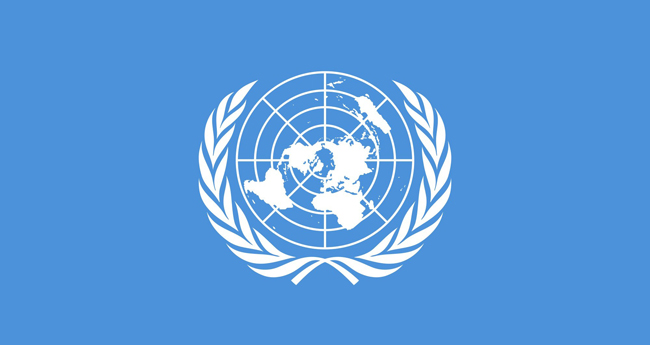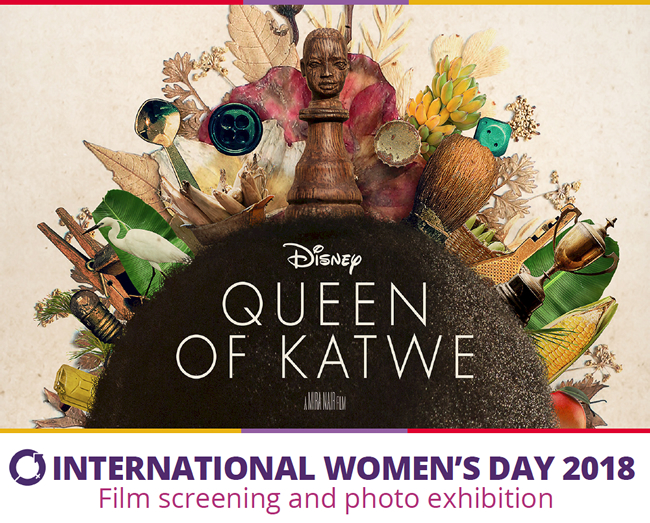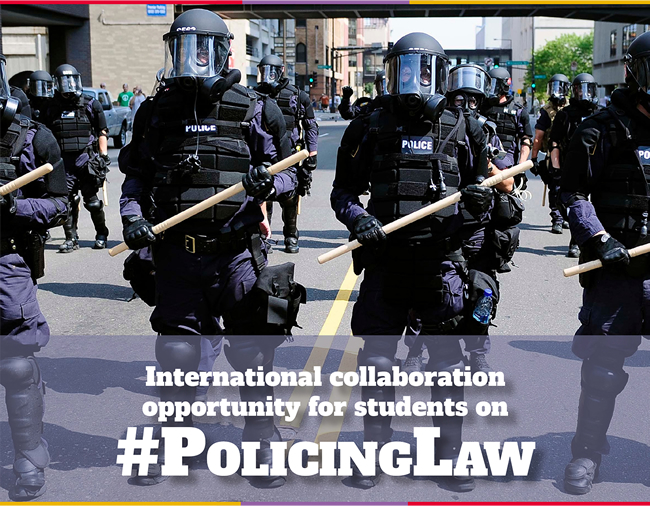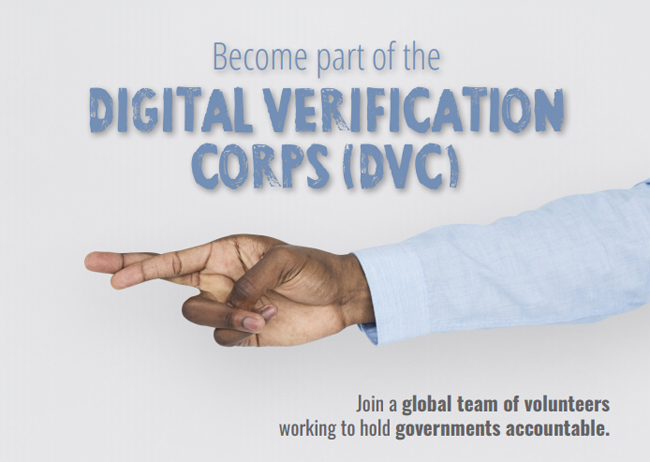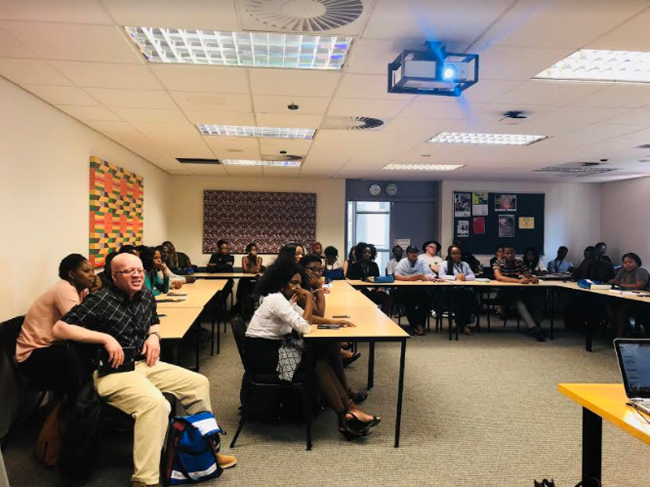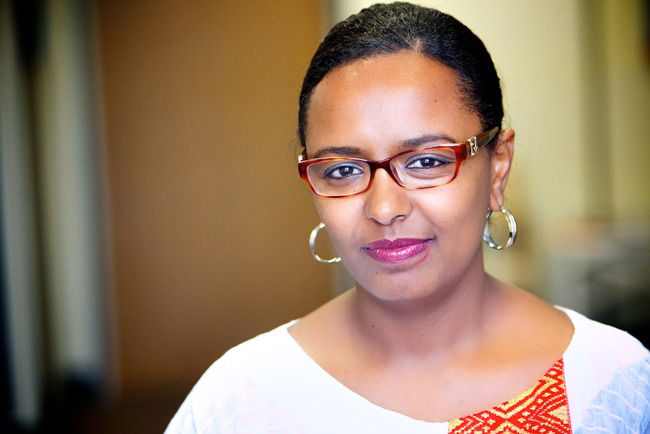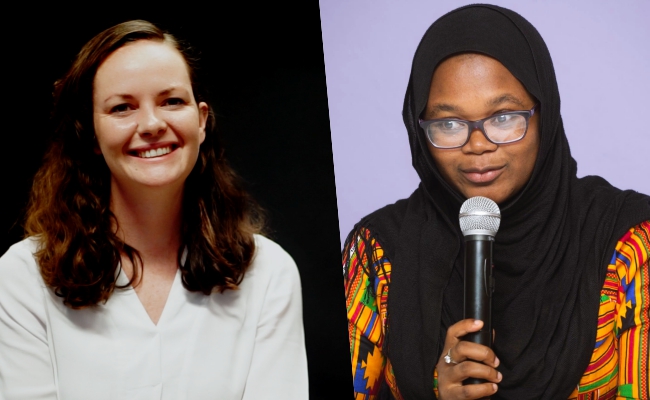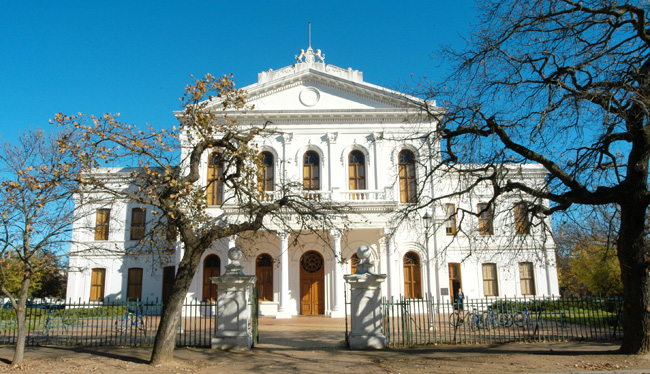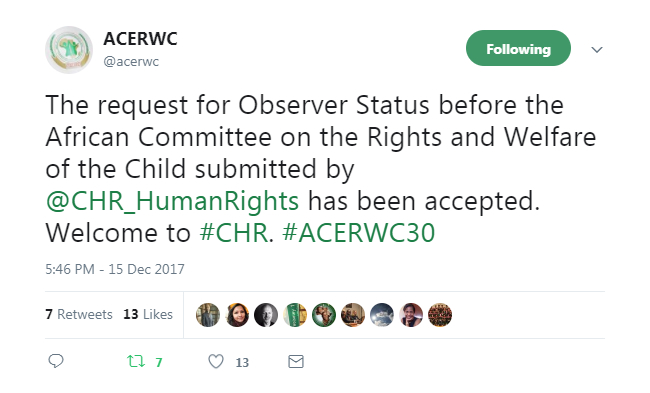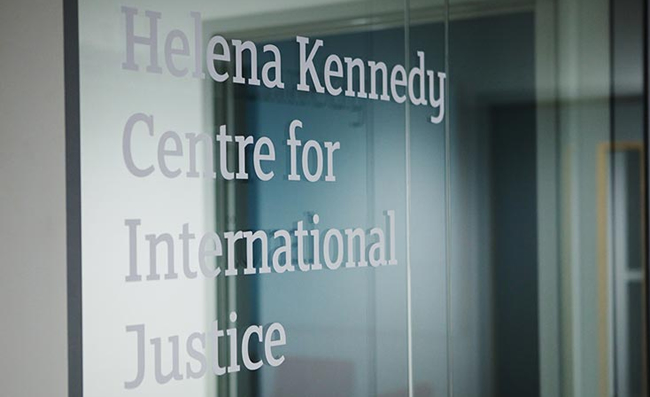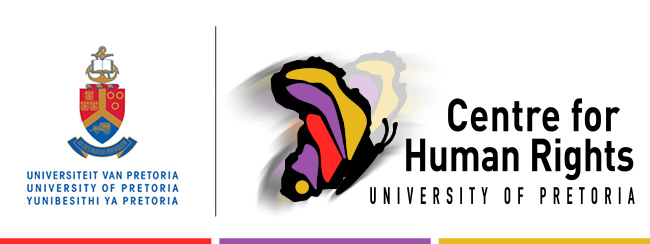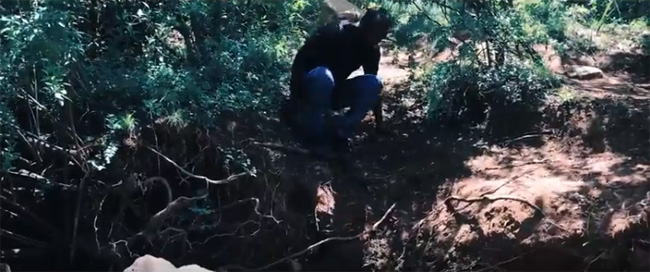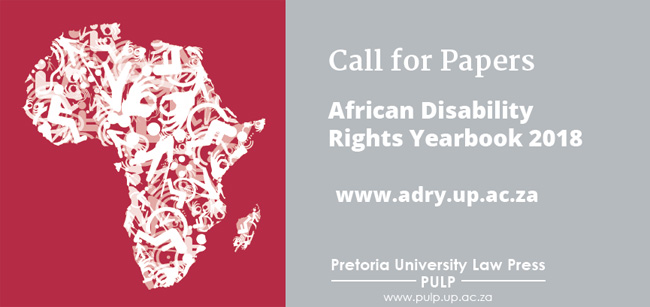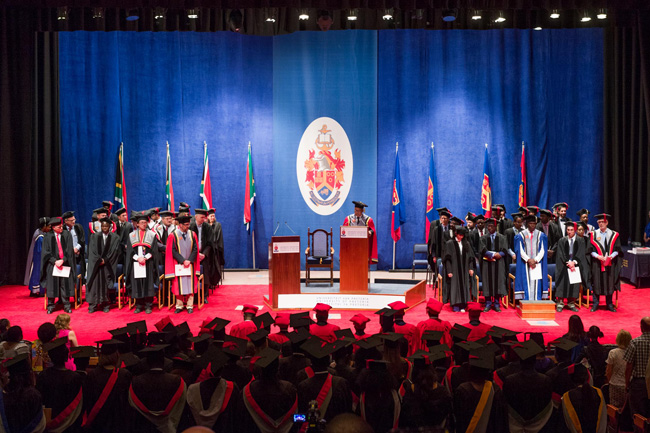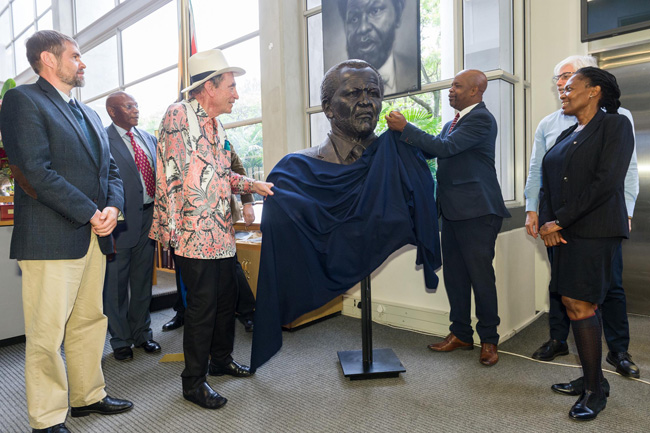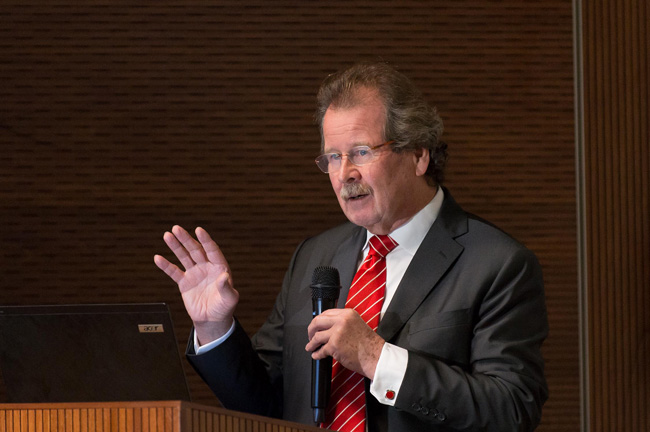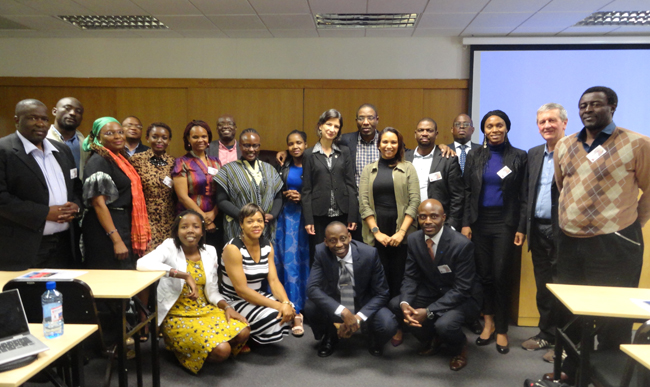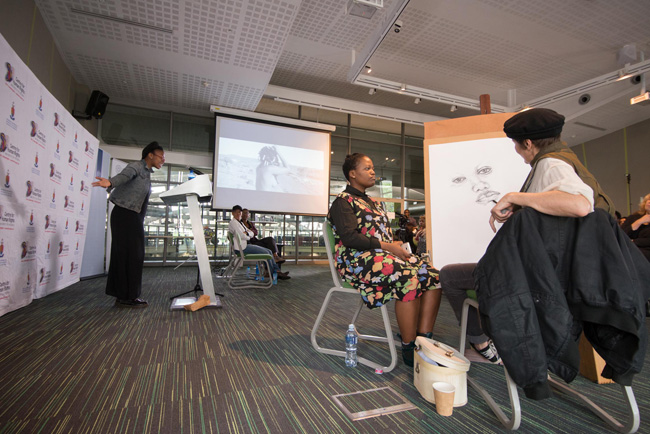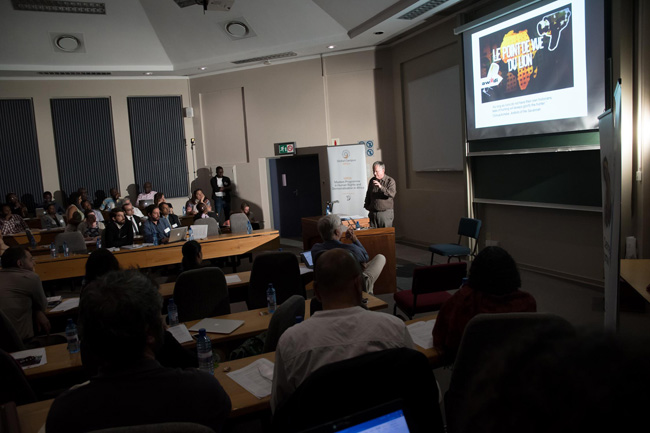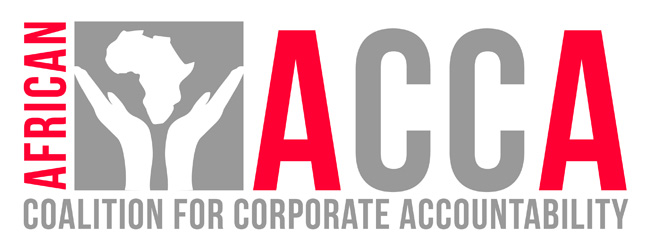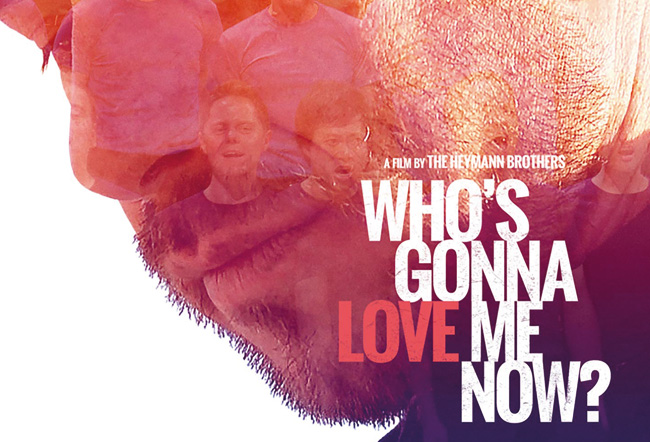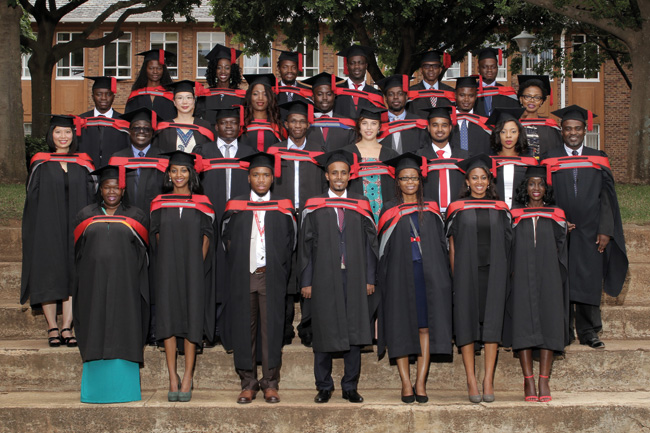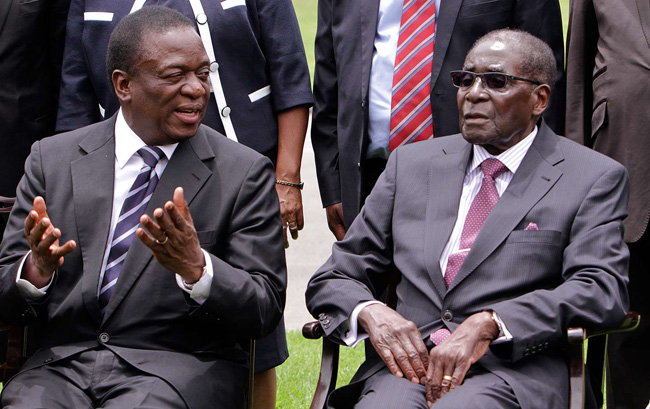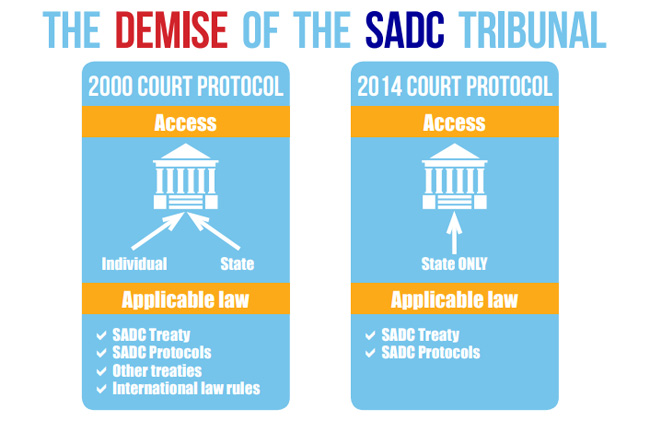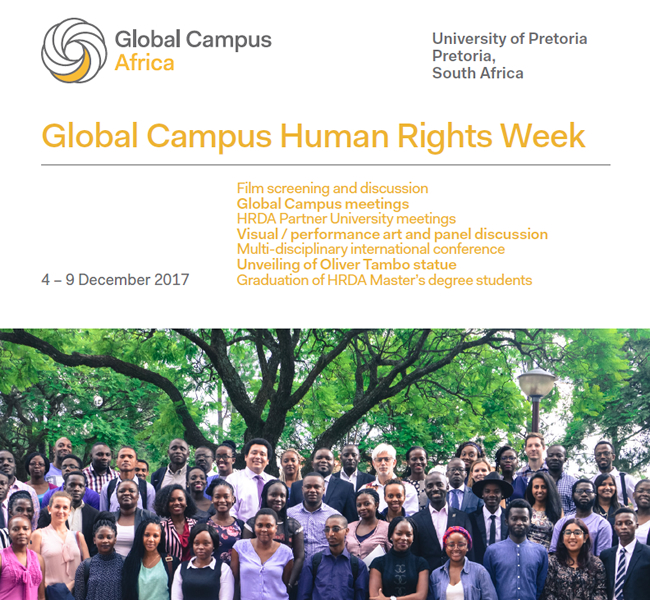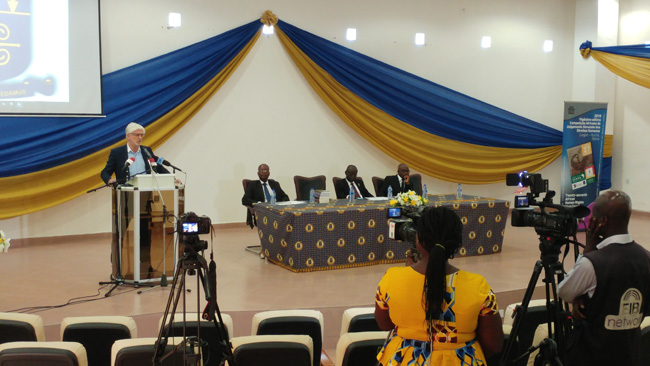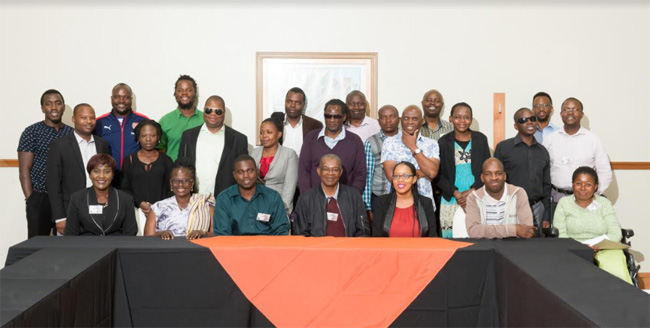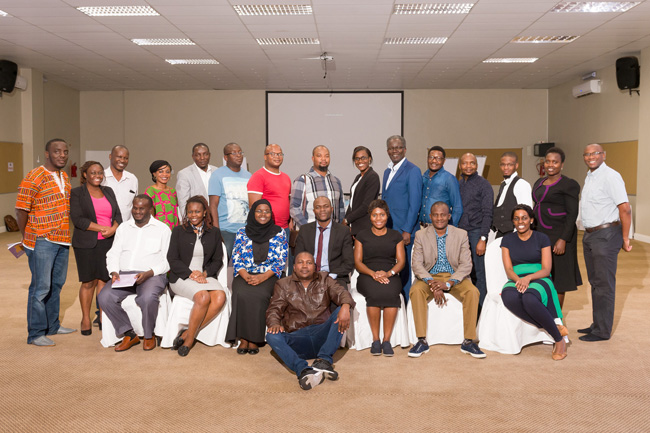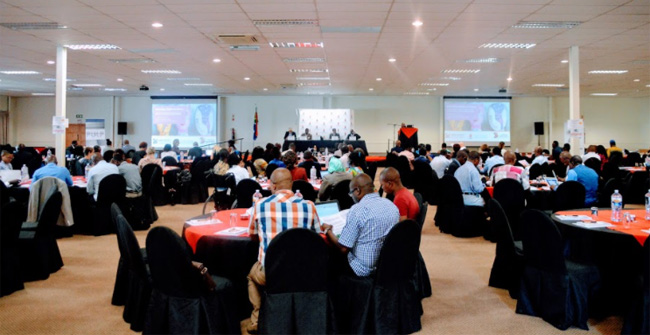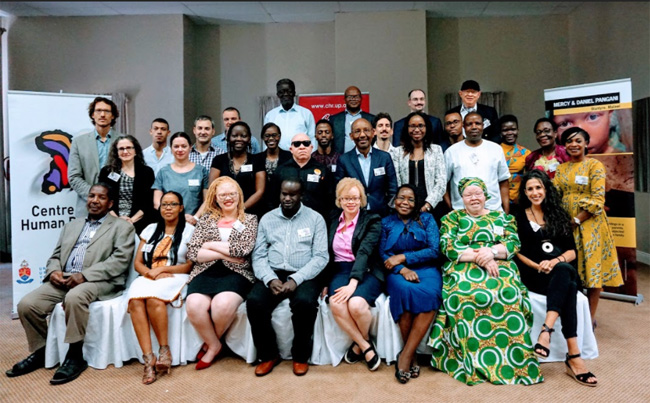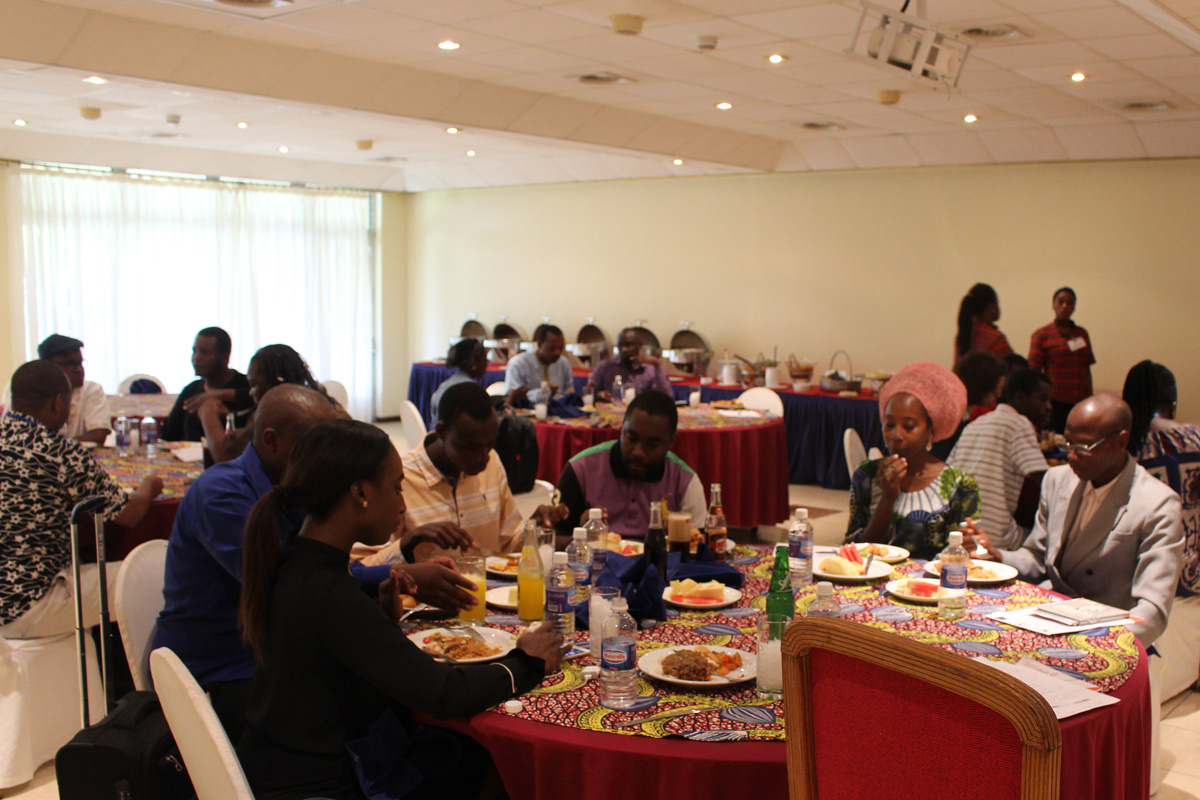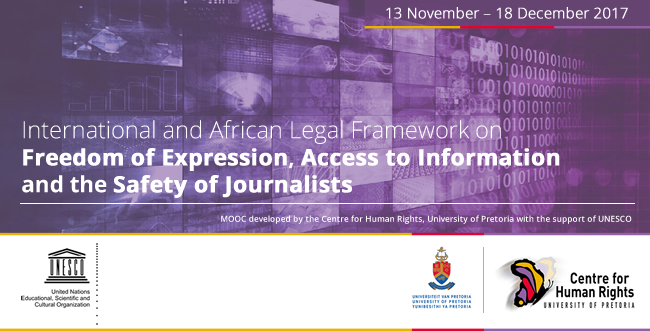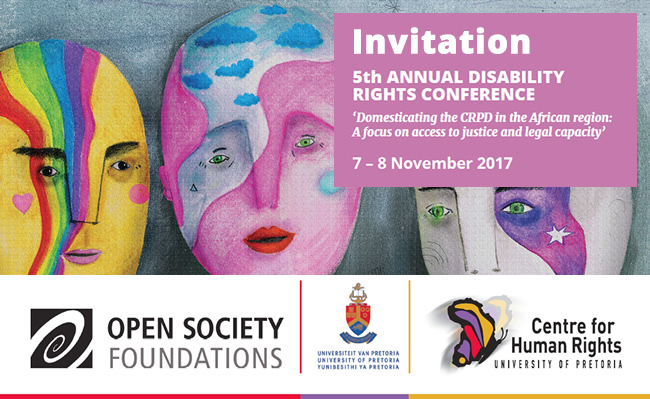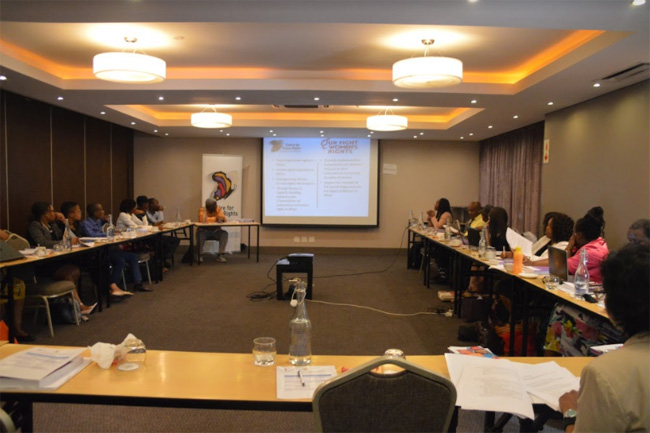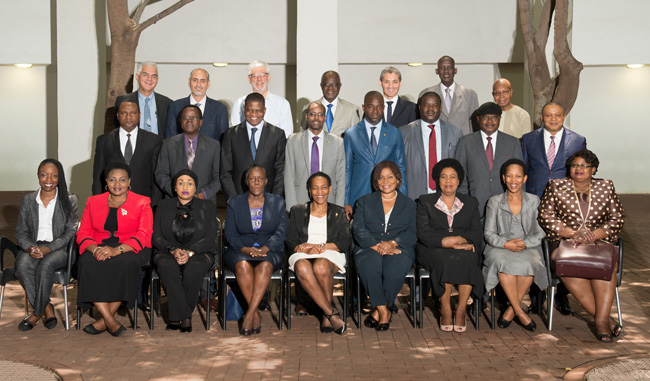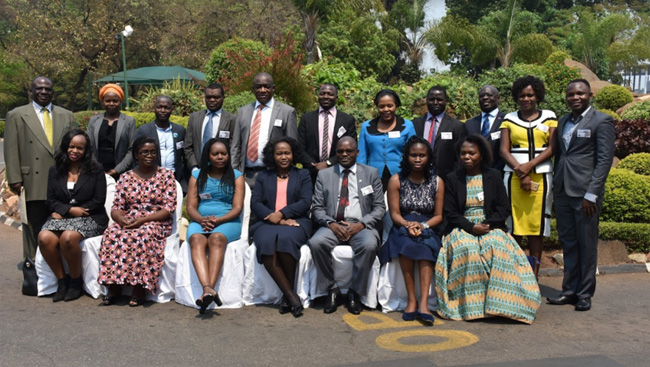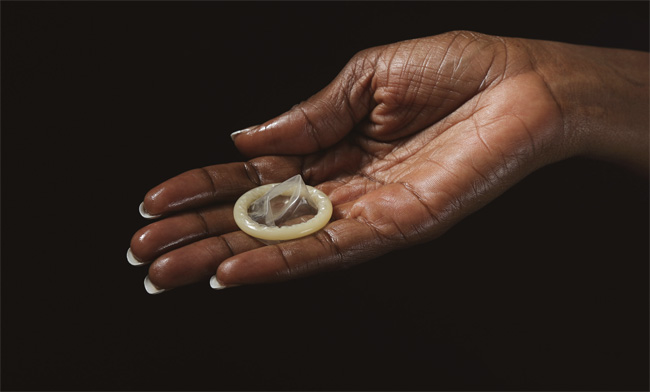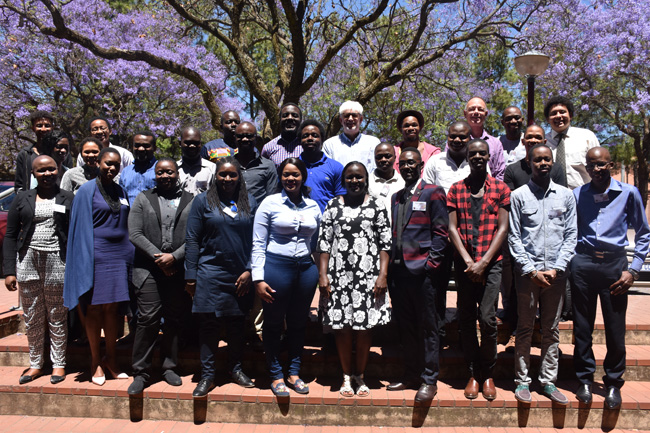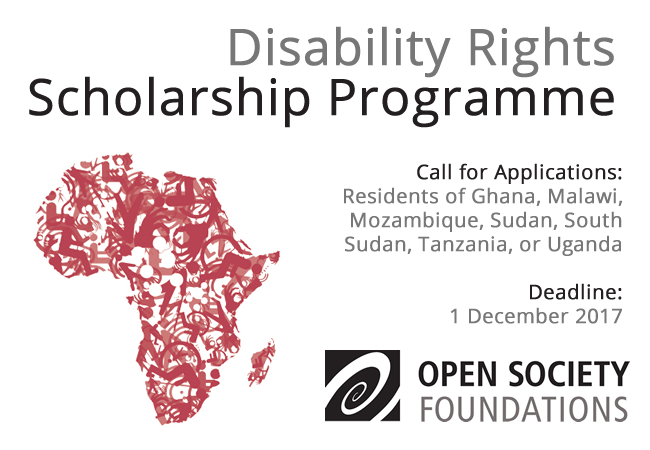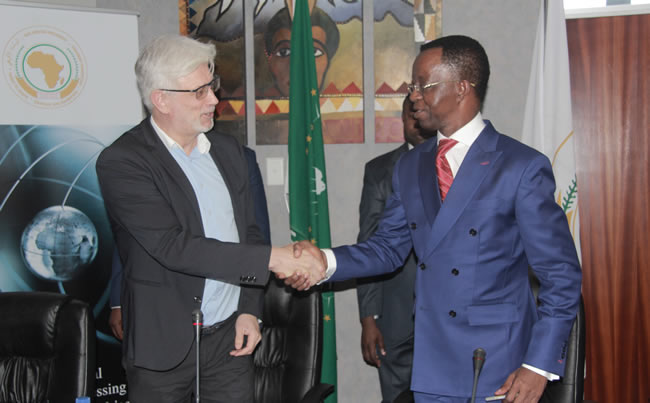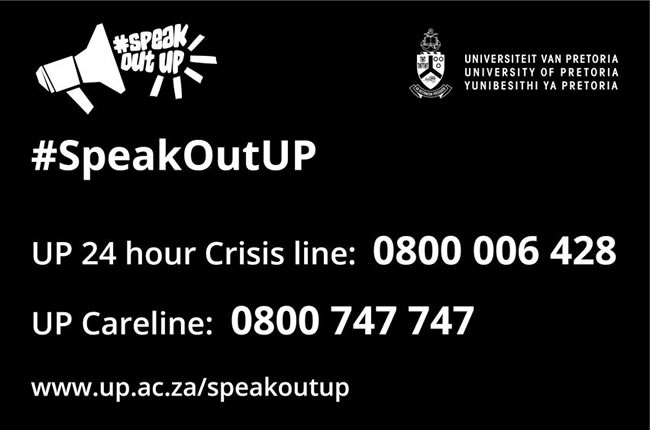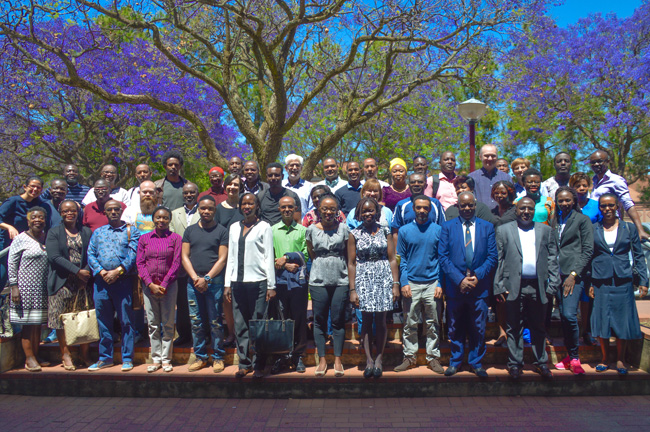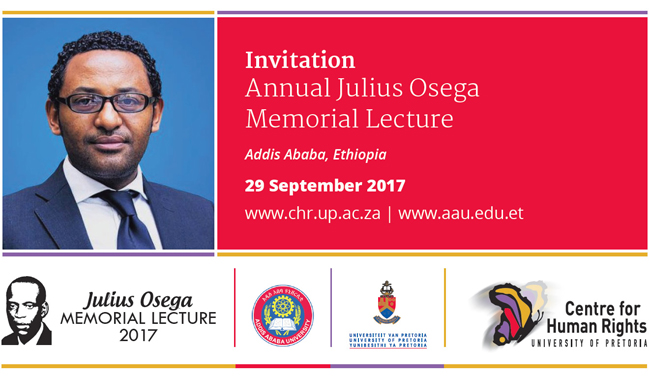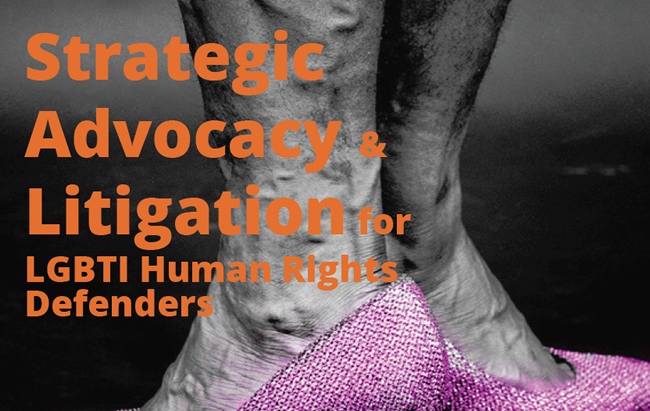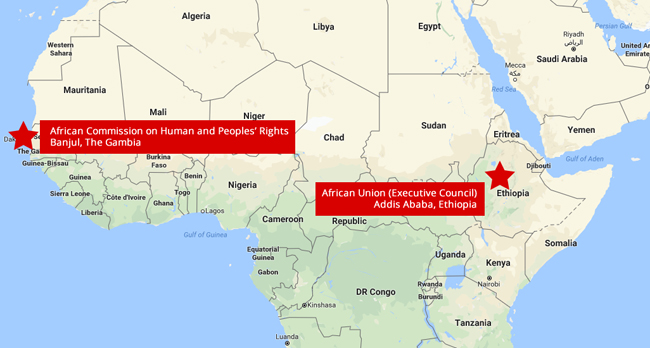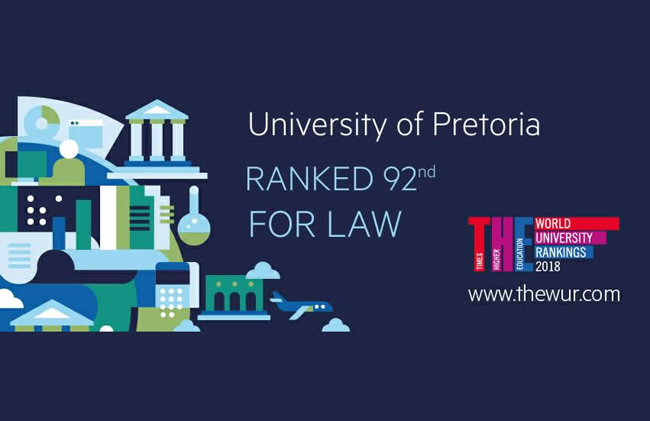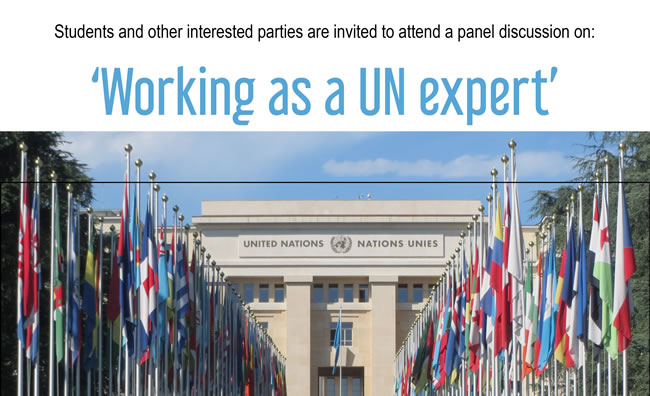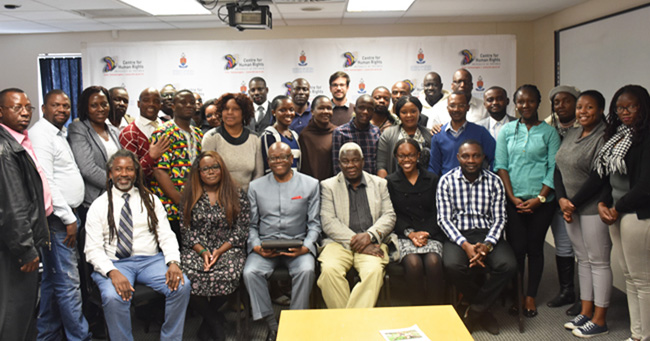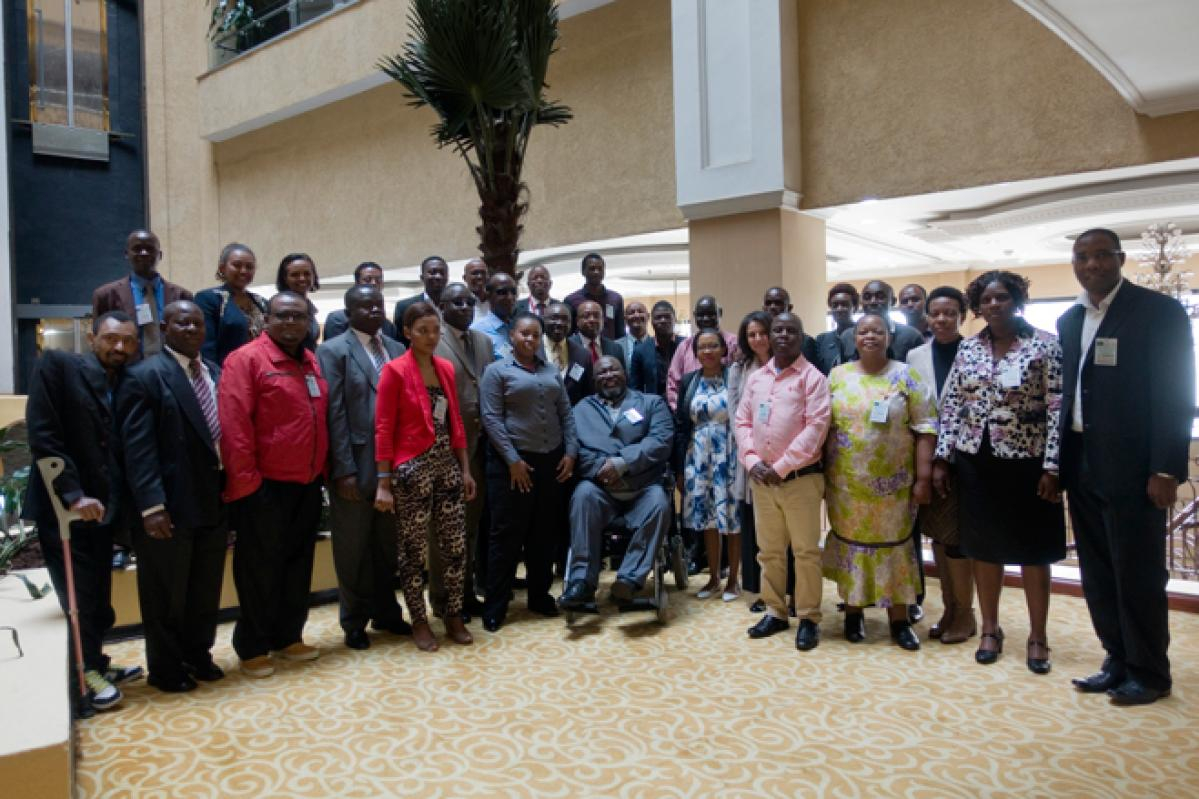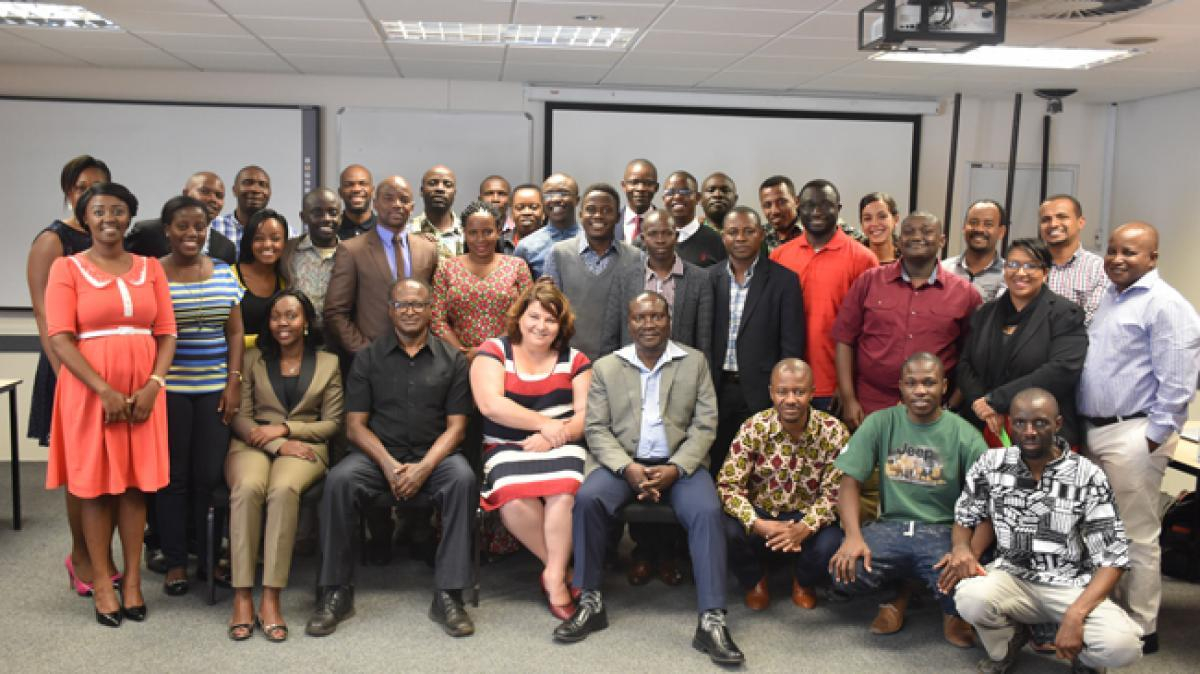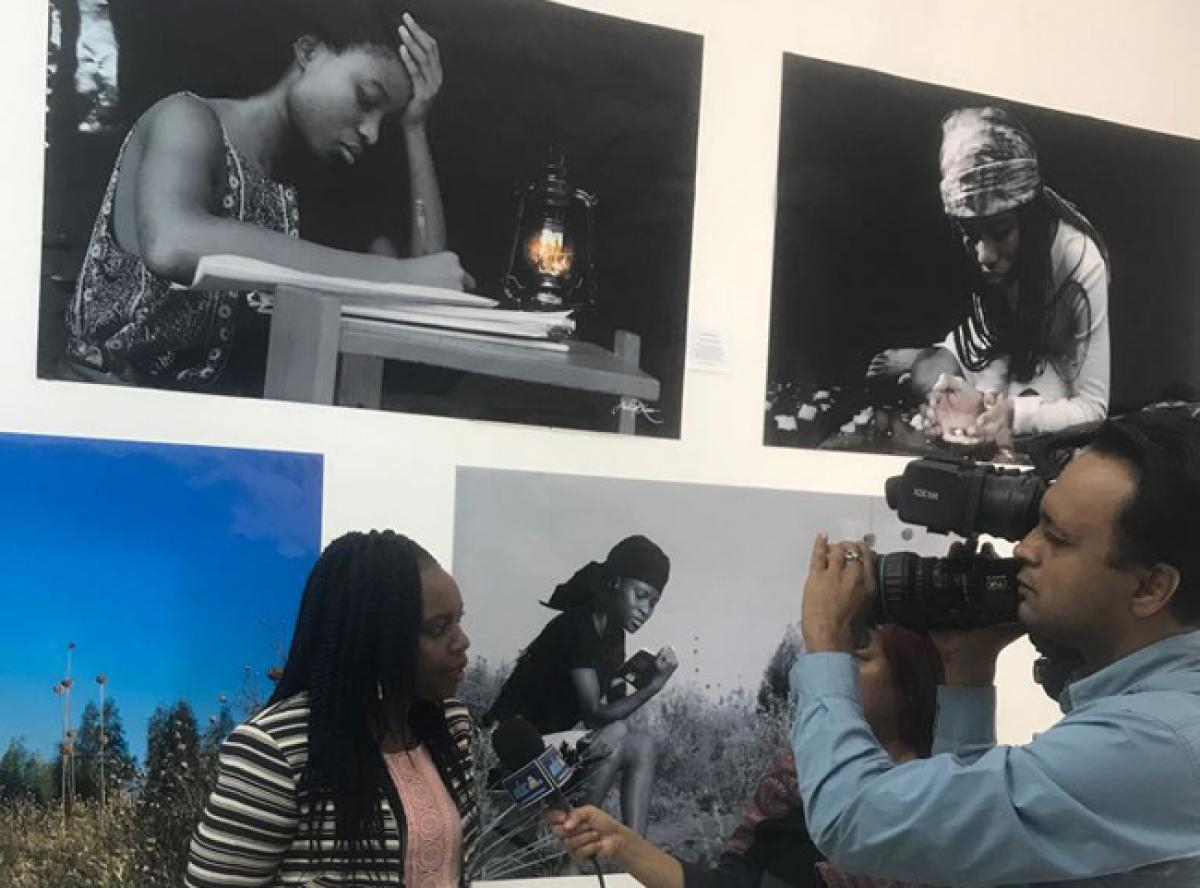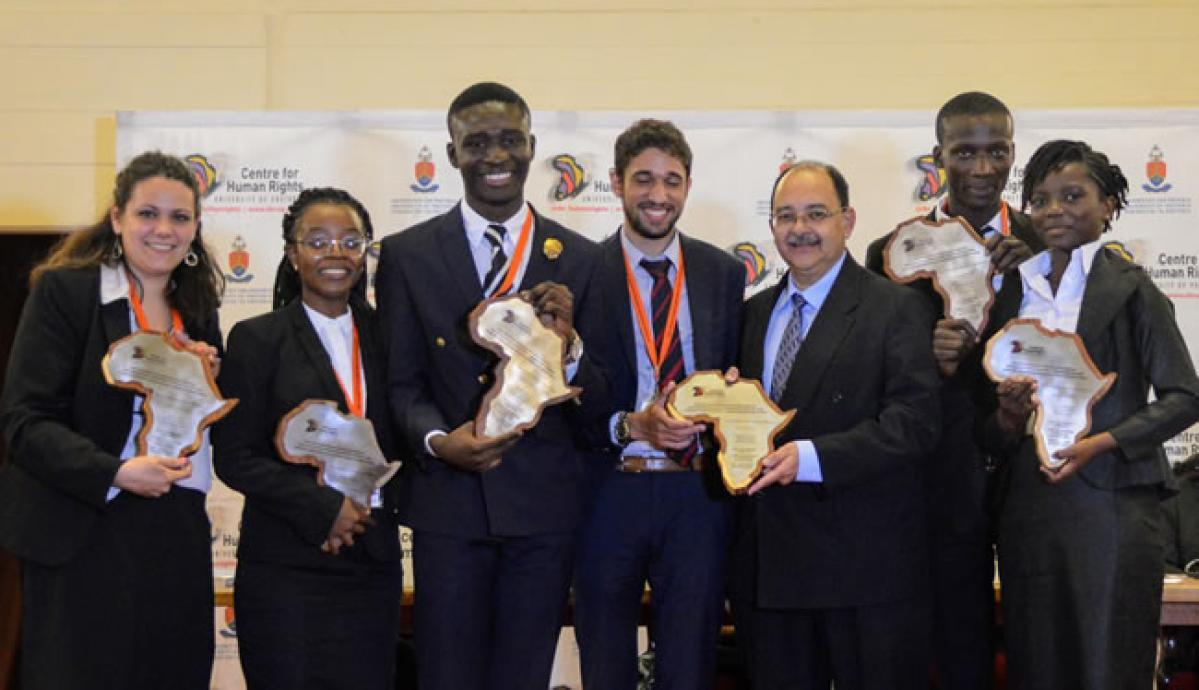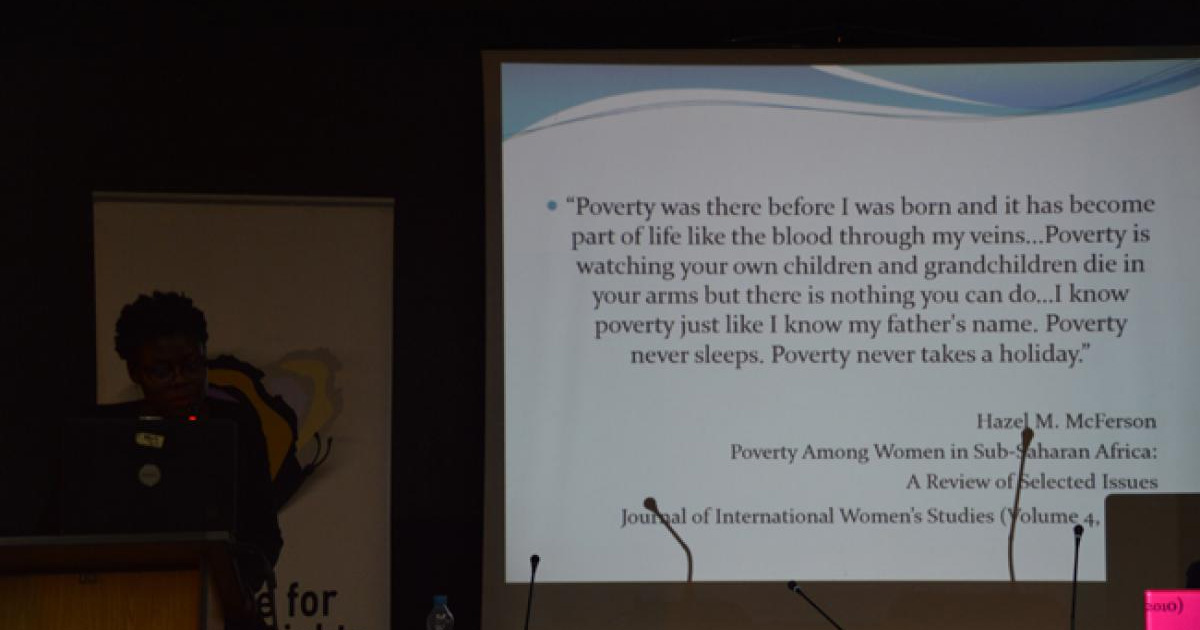- Details
The Centre welcomes the promotional visit by the African Commission on Human and Peoples’ Right (African Commission) to South Africa. This visit, which takes place from 3 to 8 September, aims to raise awareness about the African human rights system, established under the African Union(AU), and to provide a forum for dialogue about the state of human rights in South Africa.
Having been established in 1987 to supervise states’ adherence to the African Charter on Human and Peoples’ Rights (African Charter), the Commission is the longest-standing AU human rights body. It is an independent body, composed of eleven African experts, created as an autonomous institution to supervise human rights within member states. Its mandate is to promote and protect the rights of everyone under the jurisdiction of states that have accepted to be bound by the African Charter. All AU member states, with the exception of Morocco, have become a party to the African Charter. South Africa joined soon after its democratic transition, in 1995.
- Details
On 3 September 2018, the Sexual Orientation, Gender Identity and Expression (SOGIE) Unit at Centre for Human Rights, Faculty of Law, University of Pretoria kicked off the Strategic Litigation and Advocacy workshop for African LGBTI Human Rights Defenders. The workshop was officially opened by Hans Peters, the ambassador of the Kingdom of Netherlands. The workshop aims to strengthen the capacity of civil society organisations in order to better pursue legal disputes and advocate on behalf of LGBTI people who are at risk of suffering serious human rights violations. In addition, the workshop seeks to have participants learn from each other about the challenges of filing cases at domestic courts. Mr Peters encouraged the participants to continue fighting for equality of LGBT individuals within Africa.
- Details
The Institute for International and Comparative Law in Africa and the Geneva Academy invite you to a discussion targeted at seeking input from a broad range of stakeholders on a set of draft guidelines on the lawful and responsible redesign, production, procurement, testing, training, transfer and use of non-lethal weapons and related equipment.
Speakers
- Prof Christof Heyns
- Prof Stuart Maslen
Participants are invited to visit www.policinglaw.info in order to download the Consultation Draft of the Guidelines, or to visit this page for further details.
- Details
A recent PULP publication, What is Africanness: Contesting nativism in culture, race and sexualities, by Charles Ngwena, Professor of Law at the Centre for Human Rights, Faculty of Law, University of Pretoria, is a peer-reviewed monograph aiming to contribute to the ongoing scholarly conversation in and beyond South Africa about who is African and what is African. It aims to implicate a reductive sameness in the naming of Africans (‘nativism’) by showing its teleology and effects; and offers an alternative understanding of how Africans can be named or can name themselves.
- Details
From 17 to 18 August 2018, the Southern African Development Community (SADC) is holding its 38th Ordinary Summit of the Heads of State and Government in Namibia. The Summit is expected to address some of the critical challenges affecting the region including the need to address poverty, promote development and take steps towards sub-regional integration. The Summit is also expected to speak to peace, stability and security in the region. Whilst these goals are inspirational, achieving them requires strong regional institutions capable of defending the rule of law and promoting democratic governance.
- Details
The Centre for Human Rights, University of Pretoria is proud to announce the winners of this year’s FACES African Student Cellphone Film Competition.
First Prize (R10 000):
Jenira Ferreira with ‘Disillusionment of Student Culture’
The film was well executed and incorporated unique techniques that added flare to the overall output. This film was outstanding in its audio narration, cinematic shots and editing style.
- Details
The Centre of Human Rights, University of Pretoria, in collaboration with the Pan-African Parliament (PAP), held a Civil Society Organisations’ Forum on the sidelines of committee sittings which focused on the theme ‘Effective Engagement with the Pan-African Parliament’. The one-day meeting, which was held on 8 August 2018, was attended by the First Vice-President of the PAP, Honorable Julius Masel; the PAP Acting Clerk Parliament, Mr Yusupha Jobe; the PAP Legal Counsel, Mr Clement Phebe Mavungu; the PAP Senior International Relations Officer, Mrs Lyn Chiwandamira; Professors and staff members from the Centre of Human Rights. The forum was attended by Gauteng-based civil society organisations (CSOs) including Oxfam South Africa, Southern African Parliamentary Support Trust (SAPST), the Open Society Initiative of Southern Africa (OSISA), Section 27, South African Institute of International Affairs (SAIIA), Centre of Applied Legal Studies (CALS), Freedom House and the French Embassy. The forum sought to establish a common approach to sustained and meaningful engagement by enabling participants to share and exchange best practices on how to achieve an effective and constructive civil society engagement platform with the PAP.
- Details
The final round of the 27th African Human Rights Moot Court Competition, which took place on 11 August 2018 at the Law Court complex in Accra, Ghana, was won by the combined team comprising the Université des Lagunes (Côte d'Ivoire), Makerere University (Uganda) and the University of Pretoria (South Africa).
The runner up team consisted of Universidade Eduardo Mondlane (Mozambique), University of Ghana (Ghana) and University of Nairobi (Nairobi).
The final round was presided over by the Chief Justice of Ghana, Justice Sophia Akuffo, who is also a previous President of the African Court on Human and Peoples' Rights.
A total of 48 teams partcipated in this annual event, which in 2018 was organised by the Centre for Human Rights and hosted by the School of Law, University of Ghana. This was the second time that the African Moot Competition was held in Ghana.
- Details
After an intense two days of heated arguments at the 27th African Human Rights Moot Court Competition in Ghana, the results of the preliminary rounds were announced at Miklin Hotel, East Legon on 8 August 2018.
The following teams qualified for the final round which will take place at the High Court of Ghana:
- Details
The Centre for Human Rights, University of Pretoria and the School of Law, University of Ghana, Legon, in collaboration with the United Nations Office on Drugs and Crime (UNODC) are pleased to announce a one-day conference on human rights, securitisation and counter-terrorism in Africa and hereby invite proposals for papers. The conference will be held as part of the 27th African Human Rights Moot Court Competition.
- Details
Alongside the activities of the 27th African Human Rights Moot Court, the Centre for Human Rights is engaging in advocacy to advance the rights of older persons, with a specific focus on older women, in Ghana. The Centre’s Women’s Rights Unit campaign, #AgeWithRights, in partnership with HelpAge International and the Moremi Initiative, hosted an advocacy meeting on 8 August to discuss Ghana’s ratification of the Protocol on the Rights of Older Persons.
- Details
The Centre for Human Rights, Faculty of Law, University of Pretoria, cordially invites you to a conference on addressing the barriers to implementation of inclusive education in the African region, which will be held from 6 to 7 November 2018.
- Details
On the 2 and 3 August, 2018, the Centre for Human Rights hosted a colloquium on sexual minority rights within Africa. The colloquium presented a platform for authors from around the continent to challenge and re-define how sexuality, identity, and LGBT advocacy have been constructed in Africa. In his welcoming address, Professor Frans Viljoen recognized the inspirational role of Professor Charles Ngwena in initiating and conceptualising the colloquium, and emphasises its multi-disciplinary nature. In giving background about the workshop, Professor Ebenezer Durojaye challenged the participants to interrogate how sexuality has been defined in Africa, outside of Western ideals, and outlined the aspiration of a publication following the colloquium.
- Details
![]() Download this statement
Download this statement
![]() Download this media advisory
Download this media advisory
![]() Download this flyer
Download this flyer
Civil society organizations in South Africa comprised of a broad collective of human rights and women’s rights organizations and Trade Unions add their voice to the call for immediate and decisive action towards ending violence against women in South Africa.
We call upon every woman in South Africa to join us on the 1st of August to march peacefully in protest of the violence with impunity targeted at women. We demand that the government of South Africa pay particular attention to the continued and increasing spate of violence against women and girls and take concrete measures to end the violation of women’s right to life, dignity and security of persons.
- Details
The School of Law, University of Venda, and the Centre for Human Rights, Faculty of Law, University of Pretoria, cordially invite you to the Annual Helen Kanzira Memorial Lecture.
The Keynote Address will be presented by The Honourable Justice Mandisa Maya President of the Supreme Court of Appeal, South Africa ‘Safe and voluntary motherhood a matter of human rights: We can do more’
- Details
On Friday 20 July 2018, students from the 14th Cohort of the Young African Leaders Initiative (YALI) (Civic Leadership Track) visited the Centre for Human Rights to learn more about the Centre’s work.
The afternoon kicked off with a presentation from the Disability Rights Unit. The students were introduced to the United Nations Convention on the Rights of Persons with Disabilities (CRPD) and given some information on how specific rights within the Convention may be implemented in practice, using the right to access to justice which is found in article 13 of the Convention as an example. Students learnt about the different types of disabilities and the barriers which people with each type of disability typically face in accessing justice. Solutions to these barriers were also explored in the form of accommodations which may be made to enable persons with disabilities to participate effectively in the criminal justice system and access justice on an equal basis with others.
- Details
Registered undergraduate and postgraduate students from all tertiary institutions in Africa are invited to participate in the FACES 2018: African Student Cellphone Film Competition.
![]() Download the FACES 2018 Poster
Download the FACES 2018 Poster
![]() Download the FACES 2018 Official Rules (English)
Download the FACES 2018 Official Rules (English)
Submit your entry online (Deadline: 31 July 2018)
The purpose of the Competition is to encourage students from Africa to express themselves and to engage with issues of relevance to Africa, using available cellphone technology.
- Details
GENEVA (26 June 2018) – The UN Special Rapporteur on the situation of human rights in Eritrea expressed concern that patterns of violations identified over the past six years persist, namely arbitrary and incommunicado detention, indefinite military/national service amounting to forced labour and severe restrictions on fundamental freedoms.
In her fifth and final report to the Human Rights Council, Sheila Keetharuth expressed concern that the human rights violations she identified in her first and subsequent reports, as well as in those of the Commission of Inquiry in Eritrea remained unchanged.
- Details
On 13 June 2018, the Centre for Human Rights (the Centre) joined the Minister of Arts & Culture Nathi Mthethwa, Commissioner Nomasonto Mazibuko, Commissioner for Gender Equality and the Albinism Association of South Africa in the 5thcommemoration of the International Albinism Awareness Day. The theme for this year’s commemoration was “Shining Our Light to the World.”
Jehoshaphat Njau, Moyahabo Thoka and Maria Nantege from the Centre’s Disability Rights Unit attended the commemoration, held at the J. Khananda Primary School and Leonard Ntshuntshe Secondary School in eMalahleni (formerly Witbank), Mpumalanga Province.
- Details
On 16 June 2018, Africa commemorates the Day of the African Child 2018 under the theme “Leave No Child Behind for Africa’s Development”. This year’s theme aims to target children who are not benefitting from Africa’s growth and development. African countries are challenged to ensure that children are at the centre and not left behind in the drive towards sustainable economic development. This day is commemorated in memory of the Soweto student uprising, that began on June 16 1976, when students marched in protest against the poor quality of education they received and demanded to be taught in their own languages.
- Details
Celebrating the 70th anniversary of the Universal Declaration of Human Rights (UDHR), the Centre for Human Rights, Faculty of Law, University of Pretoria, is launching the UDHRat70 Multimedia Competition, with four creative categories, and a total amount of R32 000 in prizes. The Competition is open to University of Pretoria (UP) staff and students only. The winners will be announced at the Centre’s Graduation Ceremony on 7 December 2018.
![]() Download the Call for Submissions
Download the Call for Submissions
Click here to submit your entry via the online form
Visit the #UDHRat70 Multimedia Competition website
- Details
The Centre for Human Rights, Faculty of Law, University of Pretoria, is extremely concerned about the continuing human rights violations in the North-West and South-West regions of Cameroon, and the lack of international alarm and action about the situation. Available evidence strongly suggests that crimes against humanity have been and are being committed in the English-speaking regions of Cameroon.
- Details
Experts from across Southern Africa attended a meeting at the University Pretoria on 30 May 2018 to explore ways in which more attention can be drawn to the plight of older women in the region, and in Africa. They called for African states to follow the lead of Lesotho, which is on the verge of formalising its ratification of the African Union’s Protocol on the Rights of Older Persons in Africa. .
- Details
On 18 May 2018, the Pan African Parliament (Parliament) adopted a Resolution on Persons with Albinism in Africa (Resolution). The Parliament is an organ of the African Union (AU), which was established to ensure that Africa takes full ownership and participation in the development and sustainable transformation of the continent. The Parliament sits in Midrand, South Africa and comprisesof 53 AU member states. The Parliament holds the mandate to issue resolutions and recommendations on key developmental and social issues affecting the African continent.
- Details
Following on from a two-day Round Table on ‘African Approaches to International Law’, held at the Centre for Human Rights, University of Pretoria, on 3 and 4 May 2017, a two-day Conference is scheduled for 5 and 6 December 2018, in Pretoria: the ‘Kéba Mbaye Conference on African approaches to international law, with a focus on international human rights law’.
![]() Download this call for abstracts in English
Download this call for abstracts in English![]() Download this call for abstracts in French
Download this call for abstracts in French
- Details
On 16 May 2018 Ms Ikponwosa Ero, the UN Independent Expert on the enjoyment of human rights by persons with albinism addressed the Pan Africa Parliament during its Sixth Ordinary Session which ended on 18 May 2018.
- Details
The Centre for Human Rights, Faculty of Law, University of Pretoria and the Global Emergency and Counterterrorism Institute cordially invites you to a public lecture by Peter Knoope on the ‘The lone wolves’ legion’.
- Details
The Pan-African Parliament (PAP) is an organ of the African Union (AU), which was established to ensure that Africa takes full ownership and participation in the development and sustainable transformation of the continent. PAP essentially operates in a consultative and advisory role mandated by the African Union.The Centre for Human Rights established a partnership with PAP through a Memorandum of Understanding which was signed on 27 October 2017. Key among the objectives of the partnership are the promotion of capacity building on human rights and democratisation in Africa, the increased visibility of PAP and the fostering of a strong interaction between PAP and Civil Society Organisations on the continent.
- Details
The Pretoria University Law Press (PULP) recently launched a collection of essays dealing with the lives and judgments of some of the first Constitutional Court Judges who were also all appointed by then President Nelson Mandela.The book, Making the road by walking, was launched at the Centre for Human Rights, Faculty of Law, University of Pretoria (UP), on 18 April 2018, as South Africa and the rest of the world honour the birth-year of the iconic Nelson Mandela 100 years ago. A panel discussion took place under the banner: “Mandela’s legacy (re)considered: Historical and current perspectives of the Chaskalson Court”.![]() Download the publication Making the road by walking
Download the publication Making the road by walking
- Details
3 May 2018 Geneva - As the world marks Press Freedom Day on 3 May 2018, the UN Special Rapporteur on the situation of human rights in Eritrea, Sheila B Keetharuth, has called on the Government to end its crippling restrictions on freedom of the press.
“Journalists remain at risk of arbitrary arrest, imprisonment and enforced disappearance in efforts to intimidate and control them, and these human rights violations happen with total disregard for the fundamental right to freedom of expression and information, as well as individual rights,” - Ms. Keetharuth.
- Details
Statement by the Centre for Human Rights, Faculty of Law, University of Pretoria to the African Commission on Human and Peoples’ Rights, at its 62nd ordinary session, Nouakchott, Mauritania, 28 April 2018, on the situation of human rights in Africa![]() Download this statement
Download this statement
- Details
Bamako, Mali, 24 April 2018
Honourable Chairperson and members of the African Committee of Experts on the Rights and Welfare of the Child, I thank you for this opportunity to address you on the occasion of the 31st Ordinary Session of this honourable Committee. The Centre for Human Rights conveys its gratitude to the Committee for granting our application for observer status during the 30th Ordinary Session in Khartoum, Sudan in December 2017. We are pleased that granting us observer status will further facilitate our engagement with the Committee for the promotion and protection of children’s rights on the continent, especially through the full, effective and efficient implementation of the provisions of African Children’s Charter.
- Details
As South Africans, fellow Africans, and the world, finally bid farewell to Winnie Madikizela-Mandela, we at the Centre for Human Rights, Faculty of Law, University of Pretoria, join to honour the life of this remarkable woman. While it is a time of sadness, it is also a time of celebration.
We celebrate Winnie Madikizela-Mandela in solidarity with all other Africans. Few figures in modern Africa have had the power to unite and inspire as she had. Standing tall and proud, she made visible South Africans’ struggle for dignity, and ignited a common sense of purpose among Africans in all corners of the continent.
- Details
The Ambassador of the Royal Norwegian Embassy in Pretoria, Ambassador Trine Skymoen, and the Vice-Chancellor and Principal of the University of Pretoria (UP), Prof Cheryl de la Rey, today (10 April 2018) renewed the long-standing collaborative partnership between Norway and UP. Building on two previous periods of support, the Norwegian Ministry of Foreign Affairs, through its Embassy in Pretoria, provided a three-year grant to the University’s Centre for Human Rights, covering 2018 to 2020.
- Details
A recent PULP publication, Making the road by walking, considers the contribution of eight of the Judges who served on the Constitutional Court headed by Chief Justice Arthur Chaskalson, and who were still alive and no longer served on the Court in 2013. They are Justices Ackermann, Goldstone, Kriegler, Mokgoro, O’Regan, Sachs, Skweyiya and Yacoob. They were all appointed by President Nelson Mandela. Making the road by walking is edited by three members of the Human Sciences Research Council’s Democracy, Governance and Service Delivery Programme (Narnia Bohler-Muller, Michael Cosser and Gary Pienaar).
- Details
The Centre for Human Rights, University of Pretoria held a one-week intensive short course on Women’s Rights in Africa from 26 to 29 March 2018. The course is part of a series of Advanced Human Rights Short Courses the Centre organises and offers to the members of the public. The course was attended by students of the Masters in Human Rights and Democratisation in Africa as well as practitioners from government officials, women’s rights advocates and activists, members of civil society and researchers. The course has also attracted and proved useful for cross-discipline practitioners such as medical doctors who often encounter various women’s rights concerns in their work.
- Details
From 23 to 25 March 2018, Constitution Hill in partnership with the Centre for Human Rights, University of Pretoria, alongside other civil society organisations presented the first edition of the Human Rights Festival. The Human Rights Festival was held in celebration of South African Human Rights Day (21 March), 21 years since the coming into effect of the South African Constitution and 70 years since the adoption of the Universal Declaration of Human Rights by the United Nations.
- Details
The African Court on Human and Peoples’ Rights, the African Commission on Human and Peoples’ Rights, and the African Committee of Experts on the Rights and Welfare of the Child are pleased to announce the call for articles for the Second Edition of the African Human Rights Yearbook (AHRY). The First Edition, which was published at the end of 2017, comprised 17 articles. This joint publication, which contains contributions in English and French, is initiated in the framework of the complementarity relationships between the three institutions. We are inviting abstracts for papers and case discussions that will propose groundbreaking academic contributions to the human rights discourse in Africa.
- Details
Undergraduate and postgraduate students at the University of Pretoria were exposed to the world of digital verification from 13 to 15 February 2018. Sam Dubberley, Manager of Amnesty International’s Digital Verification Corps (DVC) programme, facilitated a training, which was organised by the Centre for Human Rights, University of Pretoria. The sole purpose was to open up the verification work to a multi-disciplinary group of students who will then become part of a global team assisting researchers at Amnesty International to advance accountability for human rights violations.
- Details
On the occasion of the 50th anniversary of the Republic of Mauritius, the Mauritius High Commission in Pretoria, South Africa, in collaboration with the Centre for Human Rights, Faculty of Law, University of Pretoria, cordially invites you to a debate on the topic ‘Democracy is necessary for economic development’, presented by students of the Master’s in Human Rights and Democratisation in Africa (HRDA).
- Details
The continued attacks perpetrated against persons with albinism on the continent has prompted the Centre for Human Rights in collaboration with the office of the United Nations Independent Expert on the enjoyment of human rights by persons with albinism and several organisations representing persons with albinism to appeal to the Pan-African Parliament to prioritise the rights of persons with albinism on the continent.
- Details
The Centre for Human Rights hosted the annual Advanced Human Rights Course on Sexual Minorities in Africa from 26 February 2018 to 2 March 2018 at the University of Pretoria, Hatfield campus. This course, which is sponsored by the Flemish Government, was attended by 61 participants from 17 African countries, as well as participants representing the Catholic University of Leuven, Belgium. Participants included LLM/MPhil students, lawyers, magistrates, members of the civil society and staff from State departments.
- Details
You are cordially invited to Centre for Human Rights Master’s Programmes Welcoming Ceremony.
- Details
The Global Campus of Human Rights is glad to announce the launch of the fourth edition of the GC Visual Contest, open to photographers and video-makers, professionals and amateurs, from any part of the world.
- Details
The Institute for International and Comparative Law in Africa, Faculty of Law, University of Pretoria, invites applications from individuals interested in pursuing a doctorate degree in law, specifically on the topic of the impact of the United Nations human rights treaties on the domestic level.
- Details
In celebration of International Women’s Day, the Centre for Human Rights, University of Pretoria, in collaboration with the Department of Library Services, cordially invites you to a screening of the film Queen of Katwe and the I am Woman photo exhibition.
- Details
International collaboration opportunity for students on #PolicingLaw to engage in an international effort to collect national legislation on the use of force.
- Details
Join a global team of volunteers working to hold governments accountable. Learn skills that will enable you to authenticate social media posts, separating truth from lies.
- Details
On 25 January 2018, the Centre for Human Rights hosted yet another cohort of Young African Leaders Initiative (YALI) Southern Africa scholars for an afternoon of discussions on violence against women and the rights of sexual and gender minorities. The discussion started with introductions from Ms Patience Mungwari Mpani, Manager of the Women’s Rights Unit and Mr Geoffrey Ogwaro, Manager of the SOGIE Unit, on the work of their respective units.
- Details
The Centre for Human Rights wishes to congratulate Ms Meskerem Geset Techane, an alumna of the Class of 2011 of the LLM/MPhil in Human Rights and Democratisation in Africa (HRDA) programme, who was recently appointed into the United Nations Working Group on the issue of discrimination against women in law and in practice (Working Group). She is among four other experts that make up the Working Group.
- Details
Every year, the Vera Chirwa award is given to an alumnus or alumna of the LLM/MPhil in Human Rights and Democratisation in Africa (HRDA) programme in recognition of their contributions to the advancement of human rights.
On 8 December 2017, Melanie Smuts (Class of 2012) and Musu Bakoto Sawo (Class of 2014) were jointly awarded the prize for their groundbreaking work in South Africa and The Gambia respectively.
Melanie’s commitment to improved access to quality education in South Africa through her Streetlight Schools formed the basis for her selection for the prize. While Musu was awarded the prize in recognition of her relentless commitment towards the eradication of harmful traditional practices such as Female Genital Mutilation in The Gambia.
As co-recipients of the 2017 Vera Chirwa Award, Melanie and Musu will be working on a human rights campaign with the Centre for Human Rights, amongst other things aimed at supporting the work that they do.
- Details
The Organisers of the Stellenbosch Annual Seminar on Constitutionalism in Africa (SASCA) are pleased to announce the call for papers for the Sixth Stellenbosch Annual Seminar on Constitutionalism in Africa (SASCA 2018) which will be held in Stellenbosch (South Africa) from 4 -7 September 2018.
- Details
During the 30th session of the African Committee of Experts on the Rights and Welfare of the Child (African Children’s Committee) held in Khartoum, Sudan, from 6 to 16 December 2017, the African Children’s Committee granted observer status to the Centre for Human Rights.
- Details
The pro-bono International Human Rights Clinic at the Helena Kennedy Centre for International Justice (UK) is accepting submissions from human rights activists who would like assistance filing a case before the African Commission on Human and Peoples' Rights.
- Details
The University of Pretoria wishes to invite applications for the following vacancy at the Centre for Human Rights (an academic department and a non-governmental organisation at the University):
CALL FOR APPLICATIONS:
Project Co-ordinator / Researcher, Democracy and Transpartency Unit - (One post) (12 month contract appointment) - Centre for Human Rights
Click here to view the vacancy and to apply on the University of Pretoria system
- Details
The Advocacy Unit of the Centre for Human Rights has made a short film in response to the shocking slave trade of migrants recently uncovered through a CNN investigative report.
Through this video, we call on the international community to double its efforts in ensuring that the rights of migrants are protected.
- Details
TheAfrican Disability Rights Yearbook (ADRY) is calling for papers for consideration for publication in Section A of the ADRY in 2018. The ADRY publishes once a year with a focus on disability rights issues and developments of contemporary concern to persons with disabilities on the African continent. It comprises three sections – Section A containing doctrinal articles and for which we are calling for papers; Section B containing country-focused overviews of developments in disability rights in selected African countries; and Section C containing brief overviews of developments at the African regional and sub-regional levels.
- Details
More than 50 Master’s graduates
At the University of Pretoria's graduation ceremony on 8 December more than 50 students graduated with a Master's degree from the following Master's programmes organised by the Centre for Human Rights:
- LLM International Trade and Investment Law in Africa (TILA) (23 students graduating; two with distinction)
- LLM/MPhil Human Rights and Democratisation in Africa (HRDA) (organised in collaboration with 13 partner universities across the African continent; 27 students graduating, a record number of eight students with distinction)
- LLM/MPhil Multidisciplinary Human Rights (two students graduating)
- LLM/ MPhil Sexual and Reproductive Rights in Africa (one student graduating)
- Master’s by research (one student graduating)
- Details
On Friday, 8 December 2017, the Faculty of Law at the University of Pretoria commemorated the legacy and life of Oliver R. Tambo (1917 – 2017) with the unveiling of a bust of the late leader and the launch of a book written by retired Constitutional Court Justice Albie Sachs titled Oliver Tambo's dream in the OR Tambo Law Library.
- Details
Democracies are fragile. Now, more than ever, fake news, populist politicians and disenchanted voters are putting this fragility to the test. Against this backdrop, the Centre for Human Rights (Centre), Faculty of Law, University of Pretoria, on 7 December hosted a one-day international conference on the theme ‘Democracy Under Threat’.
- Details
For over 35 years since the right to development gained formal recognition as a human right, it has remained the subject of a highly politicised debate. Unfortunately, as former UN High Commissioner for Human Rights, Navi Pillay noted on the occasion of the commemoration of the 25th Anniversary of the Declaration on the Right to Development in 2011, the politicised debate ‘has done little to free the right to development from the conceptual mud and political quicksand in which it has been mired all these years’. Conceptually, the right to development entails concrete action to ensure its realisation. Following the universal recognition of the right to development in the Vienna Declaration and Programme of Action in 1993 and the undertakings under other international instruments to make its realisation a reality, it is crucial to determine to what extend these commitments have been actualised.
- Details
To set the scene for the forth-coming International Human Rights Day slated for 10 December 2017, the Centre for Human Rights in collaboration with the Embassy of the Netherlands and Village Verbals hosted ‘The body that takes pride’ a panel discussion with visual and performance art which narrowed in on the themes of the rights of women and LGBTIQ persons. The star-studded panel was comprised of the Natalia Molebatsi, Nondumiso Msimanga, Beverly Ditsie and Prof Tiffany Willoughby-Herard.
- Details
The Global Campus Human Rights Week is held from 4 to 9 December 2017 in Pretoria. The event is organised by the Global Campus of Human Rights / European Inter-University Centre for Human Rights and Democratisation (EUIC) in partnership with the Centre for Human Rights, University of Pretoria. The first even on the agenda was a seminar on African cinema and human rights. Before the seminar, the Global Camp made several presentations, introducing all the regional programmes. These presentations comprised of sub-presentations made by delegates from the 7 branches of the Global Campus of Human Rights: Arab World, Europe, South East Europe, Latin America Caribbean, Caucasus, the Asia Pacific and Africa.
- Details
The following vacancy is available: Terms of Reference
- Details
The Centre for Human Rights, University of Pretoria, in collaboration with the Global Campus of Human Rights cordially invite you to a multi-disciplinary international conference on the theme ‘Democarcy under threat’.
- Details
The Centre for Human Rights, University of Pretoria, in collaboration with the Global Campus of Human Rights, Cinema Human Rights and Advocacy, Irish Centre for Human Rights, NUI Galway and the Kingdom of the Netherlands cordially invite you to film screenings, presentations and discussions on African cinema and human rights.
- Details
The Centre for Human Rights, Faculty of Law, University of Pretoria cordially invites you to its Master’s degree graduation ceremony. This graduation ceremony is hosted annually on or around 10 December to celebrate International Human Rights Day.
- Details
(By Prof Charles Ngwena)
What seemed unimaginable has happened. After an uninterrupted ‘reign’ of 37 years, Robert Mugabe, the de facto emperor of Zimbabwe, has ‘resigned’ from office. There has been genuine jubilation not least among those who have been at the receiving end of Mugabe’s increasingly despotic, corrupt and dysfunctional governance – the majority of Zimbabweans. Emmerson Mnangagwa has taken office as Mugabe’s successor. It is a historic moment. Since attaining independence in 1980, Zimbabweans have only known Mugabe as their political supremo – initially as prime minister and latterly as president. The fact of Mugabe’s departure from office, alone, has raised hopes that we might be at the cusp of a compassionate, fairer, humane and democratic Second Republic. At the same time, the clouds are pregnant with contradictions, counselling us not to throw caution aside even as we pine for change. Why is this?
- Details
On 18 November 2005, the Southern Africa Development Community Tribunal (SADC Tribunal) was inaugurated as a judicial body established to resolve disputes between Southern African states and between states and their citizens. At that time, there were many celebrations around the inauguration of the Tribunal because a regional court with the power to hear human rights cases is a critical mechanism in the pathway to justice after exhaustion of local remedies. However, the celebrations were short-lived. In 2009, Zimbabwe challenged the legitimacy of the Tribunal stating that it had not been established according to international law norms. This led to suspension of the Tribunal by decision of SADC leaders, in 2010.
- Details
The Global Campus Human Rights Week will be held during the week from 4 to 9 December 2017 in Pretoria, South Africa. The events will feature a film screening and discussion on African cinema and human rights, meetings of institutional and governance structures of the Global Campus, a visual / performance art and panel discussion on the rights of women and LGBTIQ persons, a multi-disciplinary conference on contemporary and future challenges to democracy worldwide and the graduation of the 18th cohort of students on the Master’s degree programme in Human Rights and Democratisation in Africa. The event is organised by the Global Campus of Human Rights in partnership with the Centre for Human Rights, University of Pretoria. The conference is realised thanks to the European Union.
- Details
It has been confirmed! The 2018 African Human Rights Moot Competition will take place in Ghana, and will be co-organised by the School of Law, University of Ghana and the Centre for Human Rights, Faculty of Law, University of Pretoria.
On 14 November 2017, the University of Ghana joined a small group of African Universities that have twice hosted the African Human Rights Moot Competition, when its Vice Chancellor and the Centre’s Director signed a Memorandum of Understanding, providing that the Moot will be hosted in Accra, from 6 to 11 August 2018.
- Details
On 9 November 2017, twenty three (23) alumni of the Disability Rights Scholarship Programme met at Saint George Hotel in Pretoria following the culmination of the 5th Annual African Disability Rights Conference. The purpose of the alumni meeting was to establish and form a platform for the alumni to network, share information about the scholarship programme, prospects for academic advancement and collaborate on issues pertaining to regional and country progress on disability rights.
- Details
The importance of inclusive education has been recognised globally as critically important for the advancement of the right to education. The retention and successful throughput of students with disabilities in higher education institutions is at a critical juncture. In Africa, the transformation of higher education systems so that they provide quality inclusive education for all students is in its infancy.Students with disabilities are for the greater part still not able to equally participate in higher education institutions as their abled bodied counterparts. The Disability Rights and Law Schools Project in Africa partner universities met in Pretoria to discuss the current state of inclusion in higher education with regards to students with disabilities.
- Details
Dr Samuel Kabue, a member of the United Nations Committee on the Rights of Persons with Disabilities (CRPD Committee), welcomed the Conference’s thematic focus, which is on legal capacity. He noted that the Committee has been grappling with the concept of ‘legal capacity’, and its practical application, especially in Africa. He lamented the fact that even for states that have ratified, the implementation of the CRPD is impeded by a lack of state reporting, a failure to accept individual complaints and failure to designate national monitoring mechanisms for the realization of the rights of persons with disabilities.
- Details
A group of representatives of organizations working on the protection of persons with albinism in Africa convened in Pretoria on Monday 6 November 2017 at the call of the United Nations Independent Expert on the Enjoyment of Human Rights by Persons with Albinism, Ms. Ikpwonosa Ero. Ms. Ero’s mandate as the Independent Expert was created in 2015 by the UN Human Rights Council, to address discrimination and stop the killings of people living with albinism.
- Details
On Saturday 4 November 2017, the Centre for Human Rights (Centre) in partnership with Iranti-org and SIPD -Uganda convened a panel discussion on intersex human rights in Banjul, The Gambia. The event came on the side-lines of the 61st ordinary session of the African Commission on Human and Peoples’ Rights (African Commission) which is taking place from 1-15 November. This was monumental considering that the African Commission is celebrating its 30 years anniversary and achievements ever-since it became operational 30 years ago.
- Details
The Centre for Human Rights, Faculty of Law, University of Pretoria and UNESCO developed a massive open online course (MOOC) on the International and African Legal Framework on Freedom of Expression, Access to Information and the Safety of Journalists. The MOOC, which runs from 13 November to 18 December 2017, is hosted on the Canvas Network platform. Enrollment is free of charge and after the successful completion of all the modules, participants will receive a certificate.
- Details
Only a few days to go! Files are packed, presentations rolled out and stakeholders from all across Africa are getting ready to attend the 5th Annual African Disability Rights Conference that will be held from 7 to 8 November 2017 at the Centre for Human Rights, University of Pretoria in South Africa. The array of participants include scholars, researchers, practitioners, human rights activists, advocates for law reform, persons with disabilities, civil society groups, lawyers, policymakers, and analysts.
- Details
By ratifying the Maputo Protocol in 2004, South Africa made a commitment to improve the status and protect the rights of women and girls in the country. It also committed under Article 62 of the African Charter and Article 26 (1) of the Maputo Protocol to submit periodic reports to the African Commission every two years from the time of ratification, highlighting the steps taken to guarantee the rights of women and girls. After consideration of these reports, concluding observations and recommendations are given to State Parties to guide them on the implementation of the rights as mentioned in the treaty.
- Details
The Centre for Human Rights in collaboration with the United Nations Educational Scientific and Cultural Organisation (UNESCO) held a three-day judicial training for judges from across Africa. The training which focused on freedom of expression, access to information and the safety of journalists took place from 23 to 25 October.
In attendance were senior judges from Cameroon, Ethiopia, the Gambia, Ghana, Guinea, Nigeria, Mauritania, Mozambique, South Africa, South Sudan, Tanzania, Uganda and Zambia. There was also a judge from the Economic Community of West African States (ECOWAS) Community of Court of Justice.
- Details
The Centre for Human Rights works for the improvement of the human rights of minorities - including sexual minorities - and other disadvantaged or marginalised persons or groups across the continent.
- Details
The Centre for Human Rights (CHR), Faculty of Law, University of Pretoria, is looking for a research consultant to prepare a baseline report on the impacts of the extractive industries on human rights and the environment in Africa. This work forms part of a project in which the CHR offers support to the Working Group on Extractive Industries, Environment, and Human Rights (WGEI) of the African Commission on Human and Peoples’ Rights (African Commission).
- Details
On Wednesday 18 October 2017, the Women's Rights Unit of the Centre for Human Rights (the Centre) organised a one-day meeting with Government and civil society organizations on Malawi’s compliance with the concluding observations issued by the African Commission on Human and Peoples’ Rights (African Commission) specifically in relation to the Protocol to the African Charter on Human and Peoples Rights on the Rights of Women in Africa (Maputo Protocol). The meeting was held in collaboration with the Ministry of Justice and Constitutional Affairs in Malawi. The meeting brought together a total of about 20 stakeholders from the relevant government ministries, National Human Rights Commission, Office of the Ombudsman and Civil Society Organisations involved in the state reporting process in the country. The meeting was held at the Sunbird Capital hotel, in the capital city of Lilongwe.
- Details
The Centre for Human Rights, University of Pretoria, calls for applications for full-time doctoral scholarships in the field of sexual and/or reproductive rights and their intersection with culture or criminalisation in the African region.
- Details
We, LGBTI human rights defenders and human rights lawyers, having gathered at the Centre for Human Rights, University of Pretoria, South Africa, from 16 to 19 October 2017 for a training on Strategic Advocacy and Litigation for LGBTI Human Rights Defenders in Africa, strongly condemn the harassment, arbitrary arrest and prolonged detention of ordinary citizens perceived to be gay in Egypt and Burundi; human rights activists working with health rights organisations in Tanzania; as well as human rights lawyers planning to litigate a case on LGBTI health rights in Tanzania.
![]() Download this statement
Download this statement![]() Download Petition to the Government of Tanzania to respect, promote and protect legal practitioners and human rights defenders from all forms of threats, harassment and intimidation
Download Petition to the Government of Tanzania to respect, promote and protect legal practitioners and human rights defenders from all forms of threats, harassment and intimidation
- Details
The Disability Rights Scholarship Programme provides awards for master’s degree study to disability rights advocates, lawyers, and educators to develop new legislation, jurisprudence, policy, research, and scholarship to harness the innovations and opportunities offered by the United Nations Convention on the Rights of Persons with Disabilities (CRPD).
- Details
The Faculty of Law, University of Pretoria (UP) on 17 October 2017 entered into a Memorandum of Understanding (MoU) with the Pan-African Parliament (PAP). The foreseen collaboration will be spear-headed by the Centre for Human Rights, but may involve other departments, centres, institutes and units in the Faculty of Law.
- Details
The Centre for Human Rights, Faculty of Law, University of Pretoria, deplores any form of sexual harassment and is steadfastly committed to supporting the University community in any way possible to ensure that it is a safe environment – free from sexism, racism and other forms of discrimination – and to foster the values of equality, integrity, human dignity, privacy and mutual respect.
- Details
The first African Forum for Doctoral Research in Human Rights (AfriDoors) was held at the University of Pretoria from 9 to 13 October. AfriDoors brought together close to 50 doctoral students, post-docs and faculty from the member institutions of Strengthening Human Rights Research and Education in Sub-Saharan Africa (SHUREA). SHUREA is a project funded by the Ministry for Foreign Affairs of Finland through the Finnish National Agency for Education (EDUFI) and is aimed at strengthening policy relevant human rights research.
- Details
The Centre for Human Rights, Faculty of Law, University of Pretoria cordially invites you to a seminar on South Sudan and issues arising from narratives on human rights and armed rebellion.
- Details
The Sexual Orientation Gender Identity and Expression (SOGIE) Unit, Centre for Human Rights in collaboration with the Kingdom of the Netherlands Embassy in Pretoria is currently hosting the 2018 Training Workshop on Strategic Advocacy and Litigation for LGBTI Human Rights Defenders and Activists. This workshop, now ongoing, shall run from 16 October 2017 to 19 October 2017. In attendance are LGBTI human rights defenders from the legal, health, civil society and other sectors across the African continent. The participants are trained on using several advocacy stragies, including faith-based, disruptive and prison advocacy, as well as strategic litigation at national level, and how to use the UN and African regional human rights system for the advancement of LGBTI human rights.
- Details
SUMMARY: In 2015, the African Commission on Human and Peoples’ Rights (African Commission), based in Banjul, The Gambia, and the AU body supervising state compliance with the African Charter on Human and Peoples’ Rights, granted observer status to the NGO Coalition of African Lesbians (CAL). When the Executive Council of the African Union (AU), with its headquarters in Addis Ababa, Ethiopia, subsequently considered the Commission’s activity report, it directed the African Commission to retract the observer status granted to CAL. A potential deadlock was avoided when two NGOs (the Centre for Human Rights and CAL) submitted a request for an advisory opinion to the African Court on Human and Peoples’ Rights, soliciting the Court’s view on how the matter could be resolved. However, the Court has now declined to give its view, on the basis that the two NGOs were not competent to bring the request. This decision puts the Commission and the Executive Council on a potential collision course. The circumstances of the case revealed that the system of NGO obtaining observer status with the AU is illusory, as no NGO has as yet obtained this status.
- Details
The Centre for Human Rights, Faculty of Law, University of Pretoria (UP), takes note of the 2018 raking of law faculties or schools by the Times Higher Education World University Rankings (THEWUR), in which the University of Pretoria’s Faculty of Law is placed at position 92.
According to the THEWUR, using a fixed set of criteria, UP’s Faculty of Law is the top law faculty not only in South Africa, but in Africa. As one of six departments within the Faculty of Law, the Centre for Human Rights acknowledges and thanks our staff, current students, our many graduates, partners, donors and other supporters, for their contributions in making the Centre – and the Faculty – a centre of excellence in Africa.
- Details
Students and other interested parties are invited to attend a panel discussion on: ‘Working as a UN expert’. The Faculty of Law, University of Pretoria is currently in the unique position where three of its professors serve as expert members of United Nations bodies involved in the development of international law. They will discuss their work and how the appointment procedure works. This should be of special interest to students who consider a career with an international dimension.
- Details
A two-days Conference on the theme ‘Regional Perspectives on the Right to Development’ was jointly organised by the Centre for Human Rights, University of Pretoria and the Thabo Mbeki African Leadership Institute, University of South Africa. The Conference took place on 28 and 29 September 2017 at the University of Pretoria.
- Details
The Disability Rights Unit at the Centre for Human Rights, University of Pretoria, conducted a training course on disability mainstreaming, coordination, financing and implementation for senior government officials of the Africa Union member states and focal persons from the African Union Commission (AUC). Senior government officials from Sierra Leone, South Sudan, Somalia, Swaziland, Lesotho, Rwanda, Uganda, Nigeria and Zimbabwe attended the one-week training which took place from 18-22 September 2017 at Capital Hotel in Addis Ababa, Ethiopia.
- Details
The Centre for Human Rights, Faculty of Law, University of Pretoria, in collaboration with International Work Group for Indigenous Affairs (IWGIA) hosted its Advanced Human Rights Short Course on Indigenous Peoples’ Rights in Africa from 25-29 September, 2017. The course brought together 32 participants; from different countries across Africa and Europe, with backgrounds that include: NGO managers, delegates of indigenous communities, academia, government policy makers, civil society, independent community consultants and legal practitioners.
- Details
Mauritius ratified (with reservations) the Protocol to the African Charter on Human and Peoples’ Rights on the Rights of Women in Africa (Maputo Protocol) in June 2017. This makes 39, the countries that have ratified the Maputo Protocol. The presence of the African Human Rights Moot Court Competition in Mauritius provided an opportunity for the Women’s Rights Unit to host an all stakeholder meeting not only to celebrate this momentous step towards full realisation of women’s rights but to also reflect on the challenges that delayed ratification since signing in 2005 and lessons apparent. In addition the meeting discussed the impact of ratification of the Maputo Protocol on the lives of women and girls in Mauritius and the critical next steps post the ratification.
- Details
The African Human Rights Moot Court Competition is the largest gathering of students, academics and judges around the theme of human rights in Africa. This annual event brings together all law faculties in Africa, whose top students argue a hypothetical human rights case as if they were before the African Court on Human and Peoples’ Rights. The Competition aims to prepare a new generation of lawyers to argue cases of alleged human rights violations before the African Court.
- Details
The African Human Rights Moot Court Competition Conference took place at the University of Mauritius on 22 September 2017. Every year, the conference is one of the major highlights of the Moot Court competition. The conference utilises the platform of the Moot Court, which brings together students and faculty representatives from over 54 different universities around Africa, to raise, discuss and advance important issues of human rights in the continent. The 2017 conference theme was “The Maputo Protocol and poverty alleviation: Towards the realisation of women's rights in Africa”.
- Human Rights Commission of Sierra Leone visits Centre for Human Rights to explore potential collaboration
- Kingdom of Lesotho senior government officials visit the Disability Rights Unit at the Centre for Human Rights
- Press statement: Centre for Human Rights and Pan Africa ILGA express grave concern about threats to the right to freedom of association and right to information as twenty are arrested at training workshop in Zanzibar, Tanzania for alleged homosexuality
- Centre for Human Rights presents 26th edition of the African Human Rights Moot Court Competition in Réduit, Mauritius

